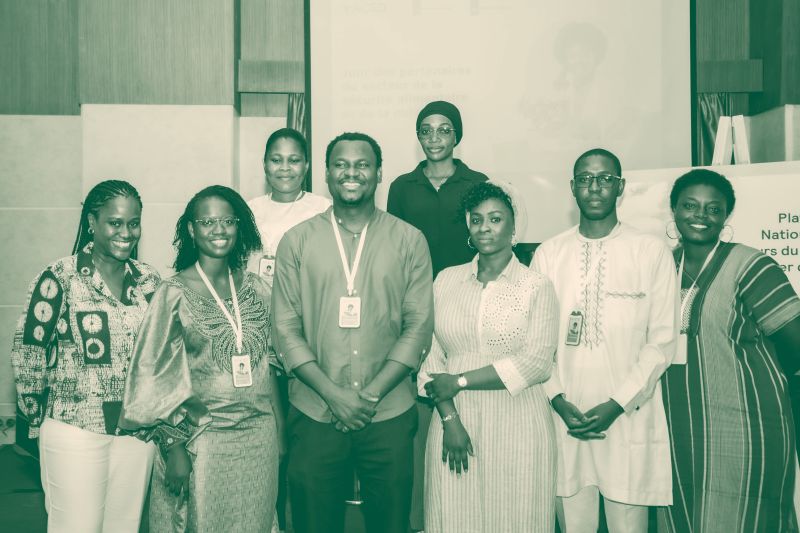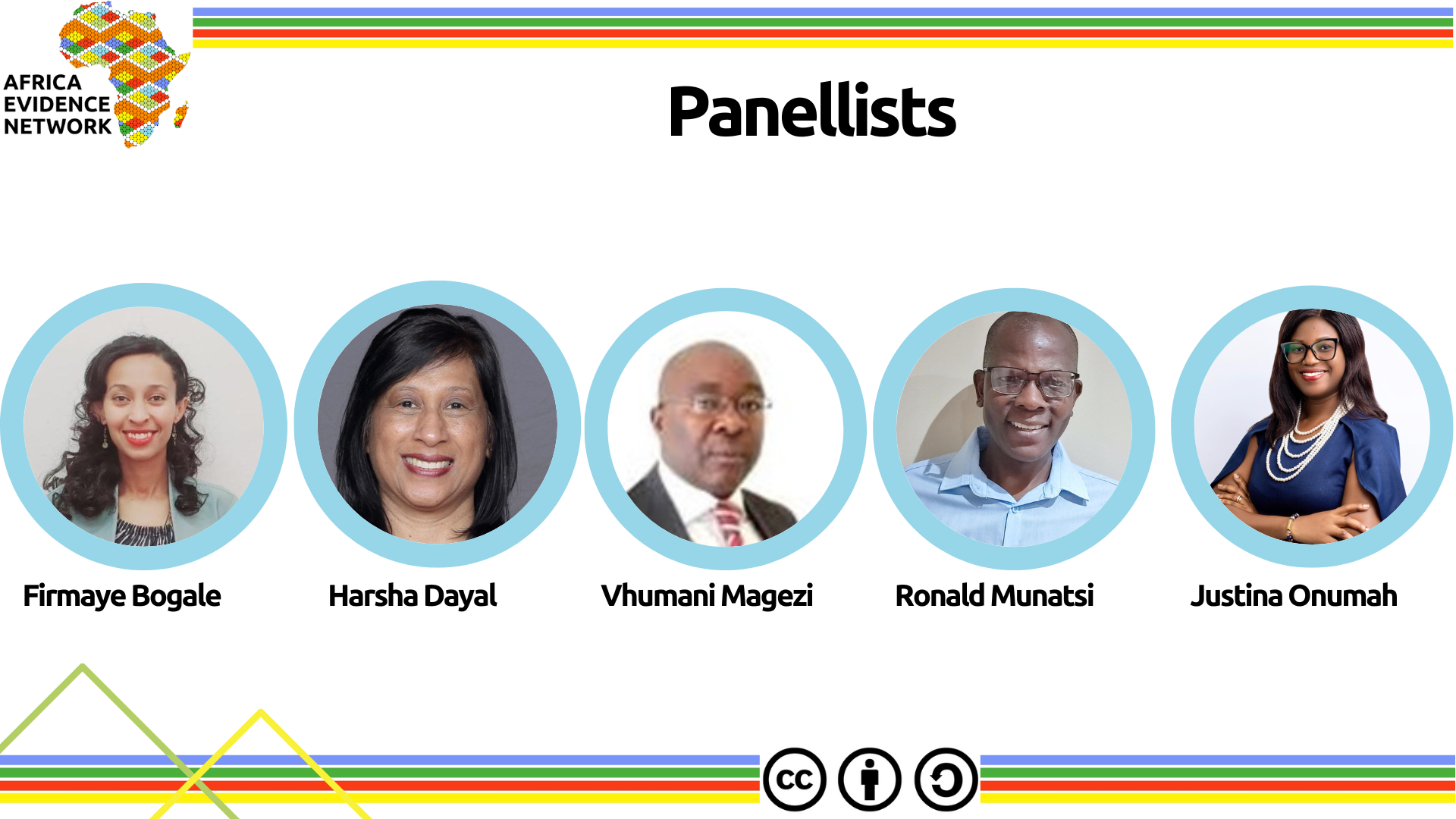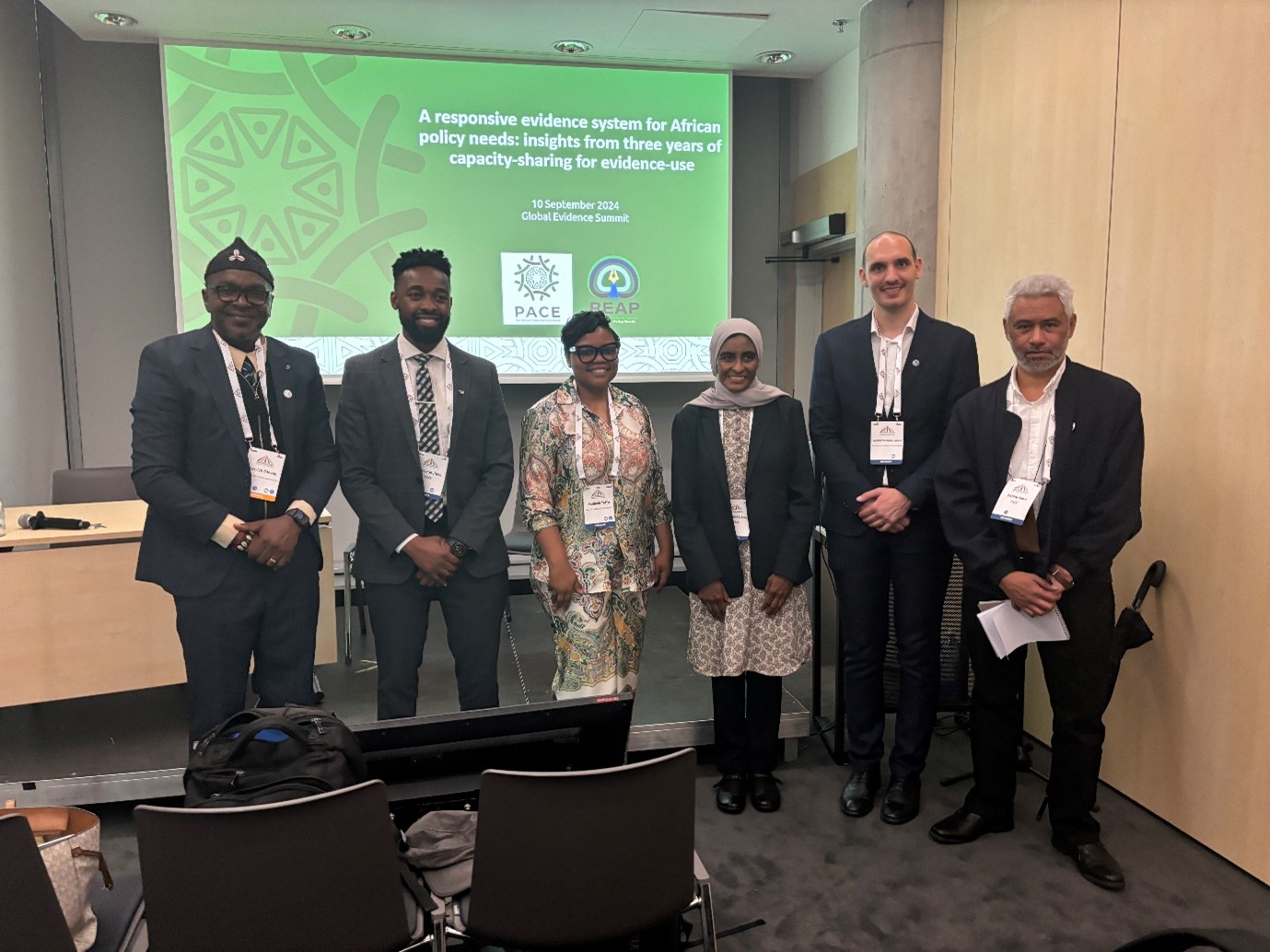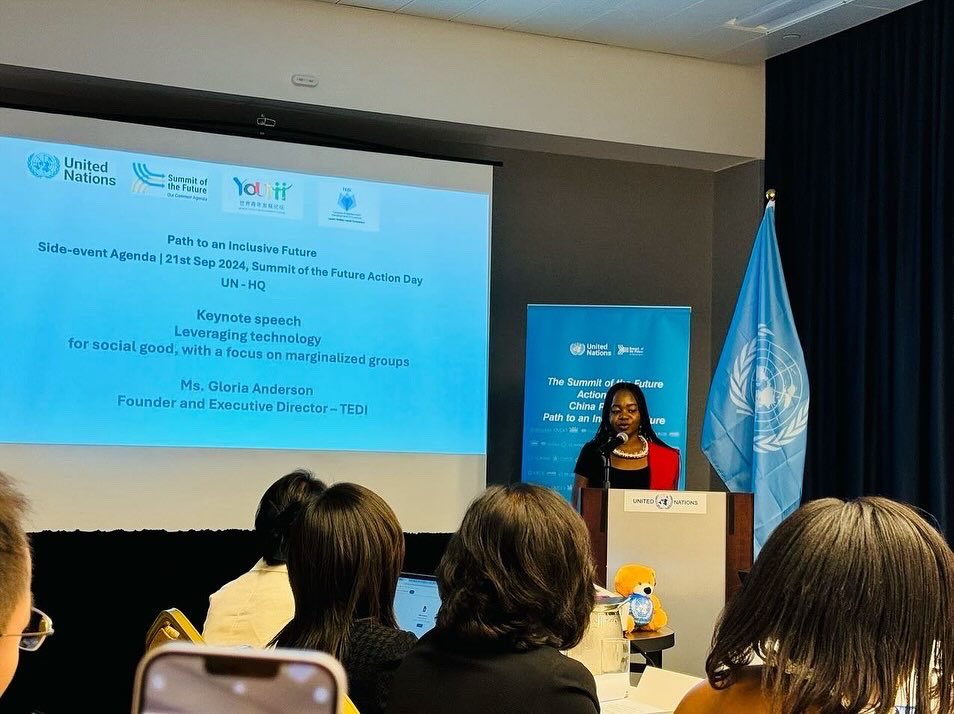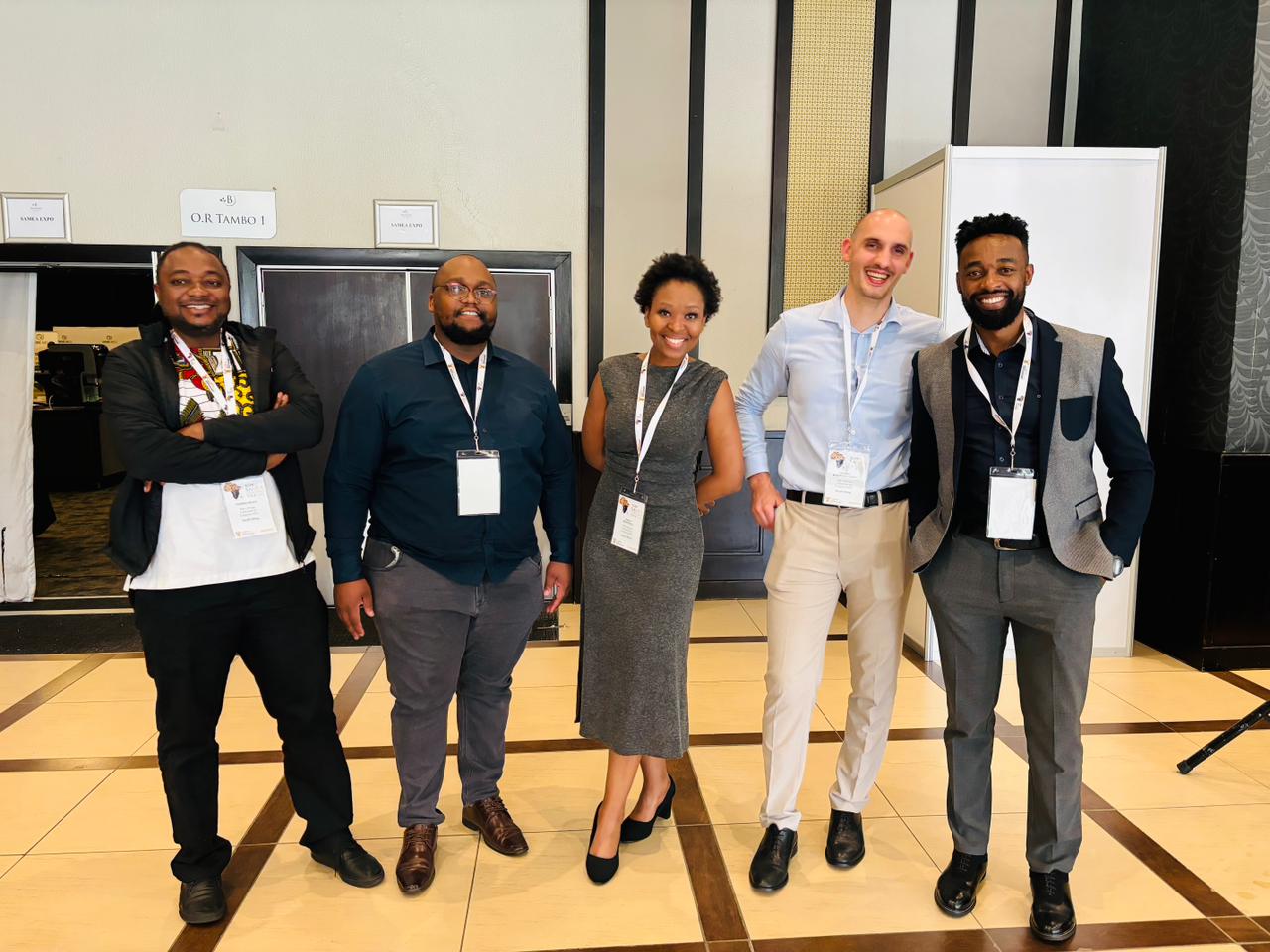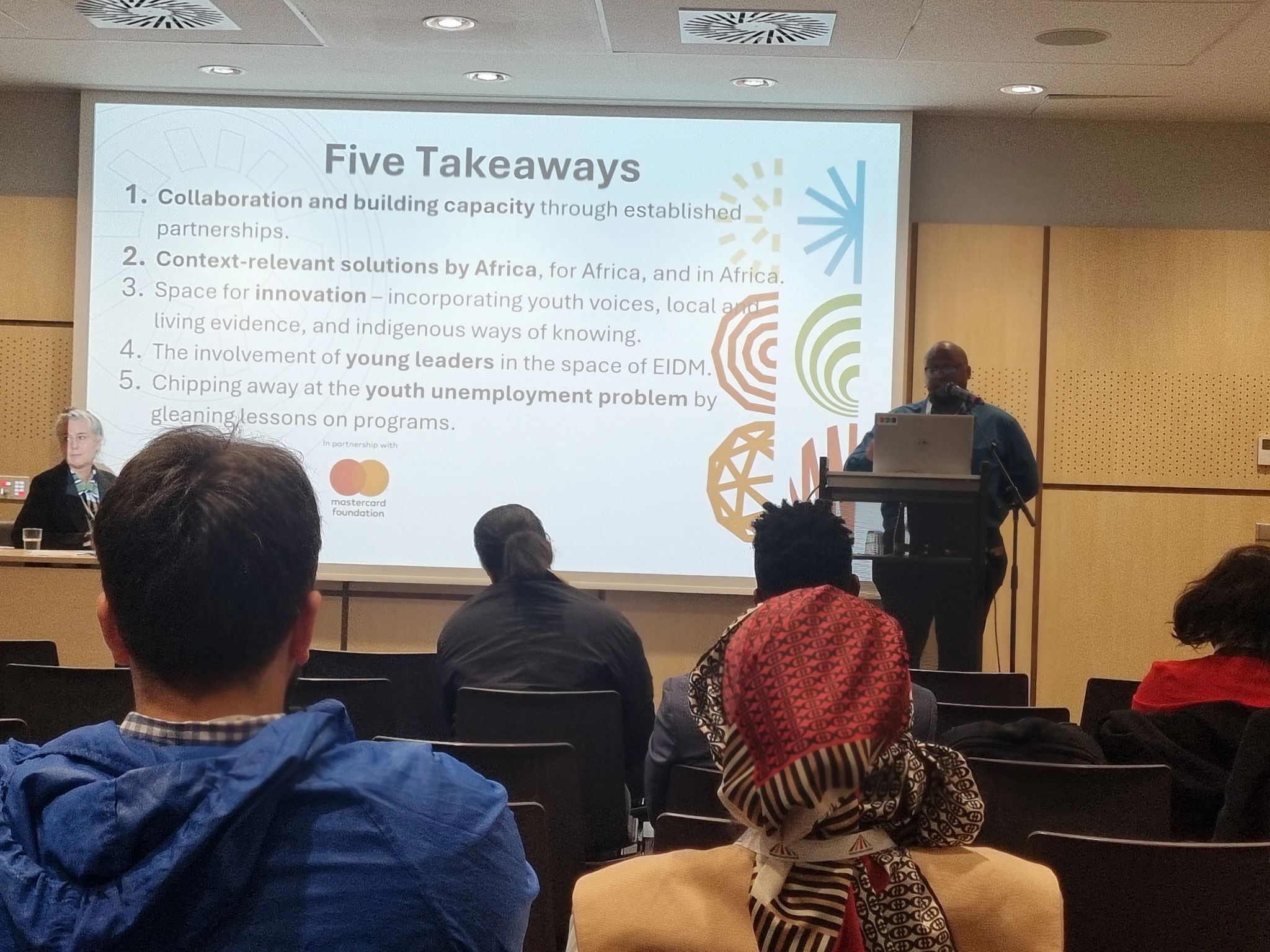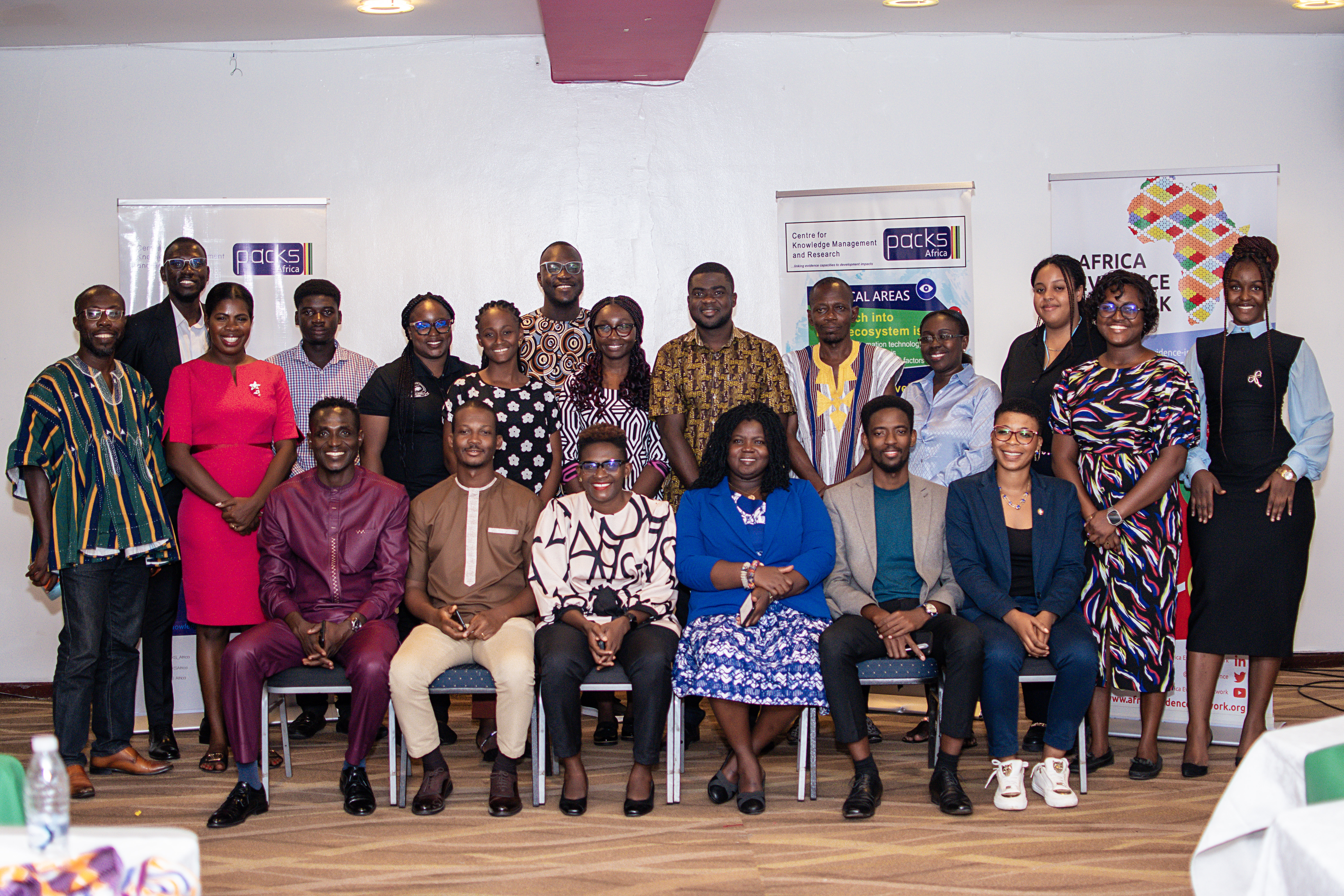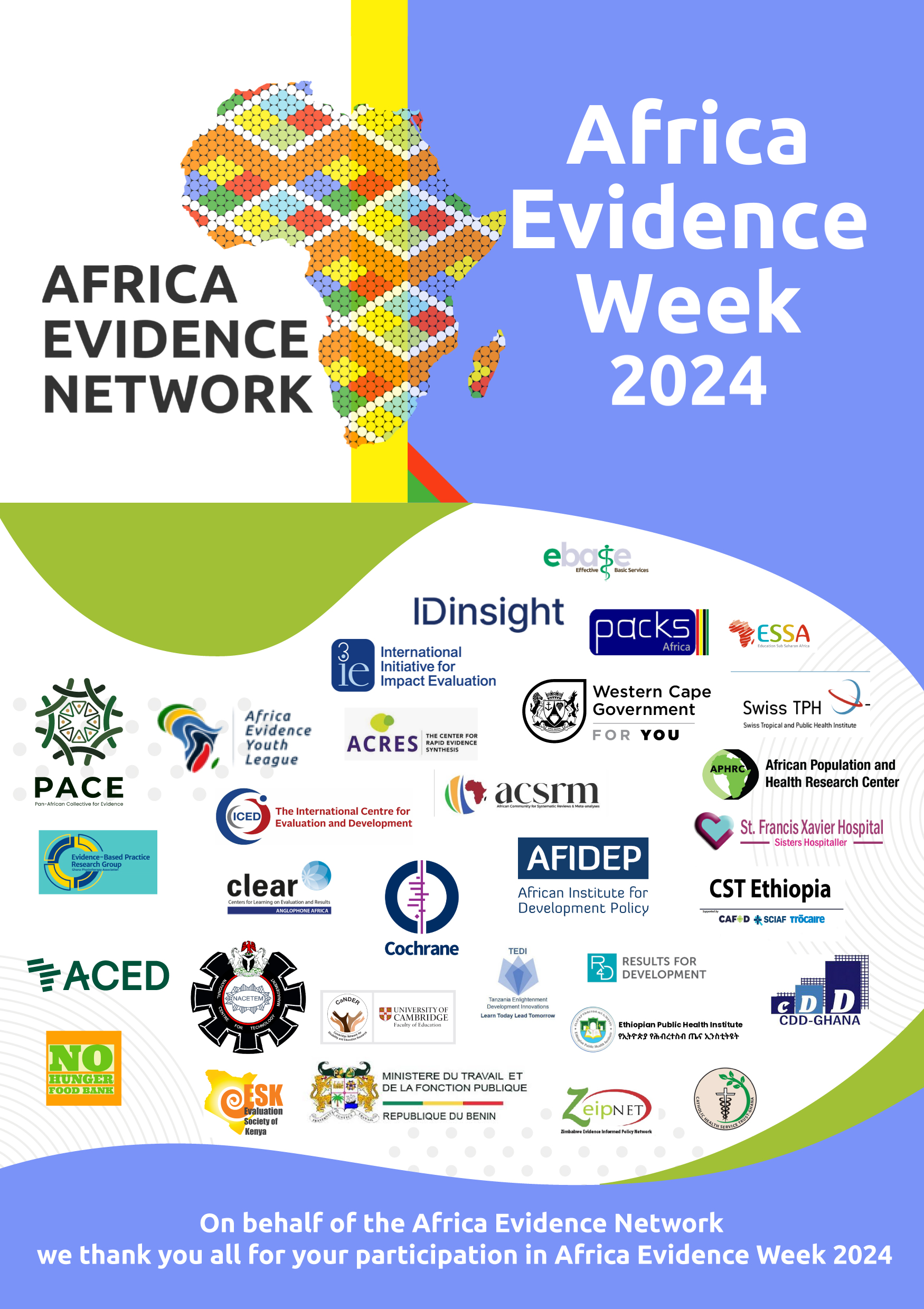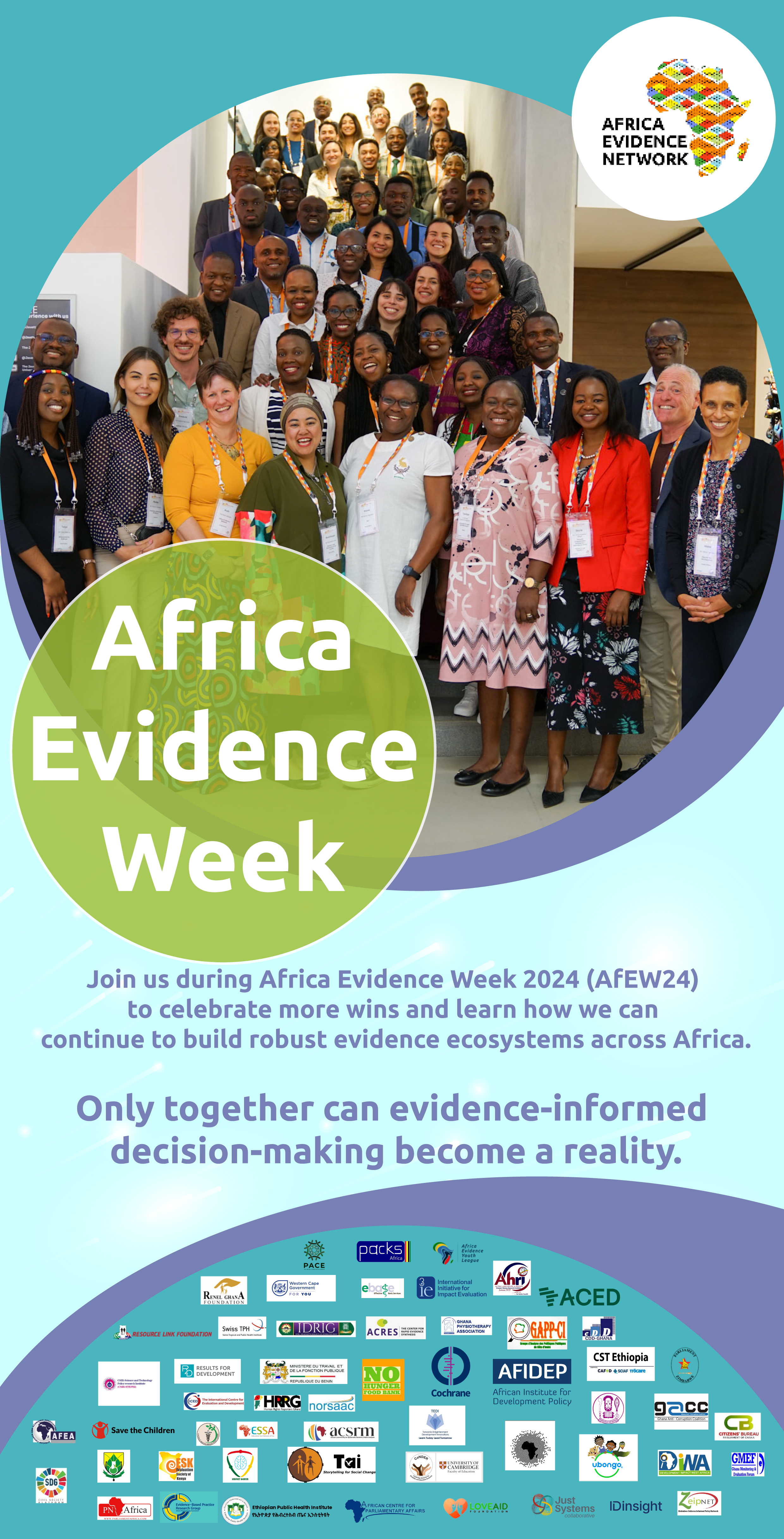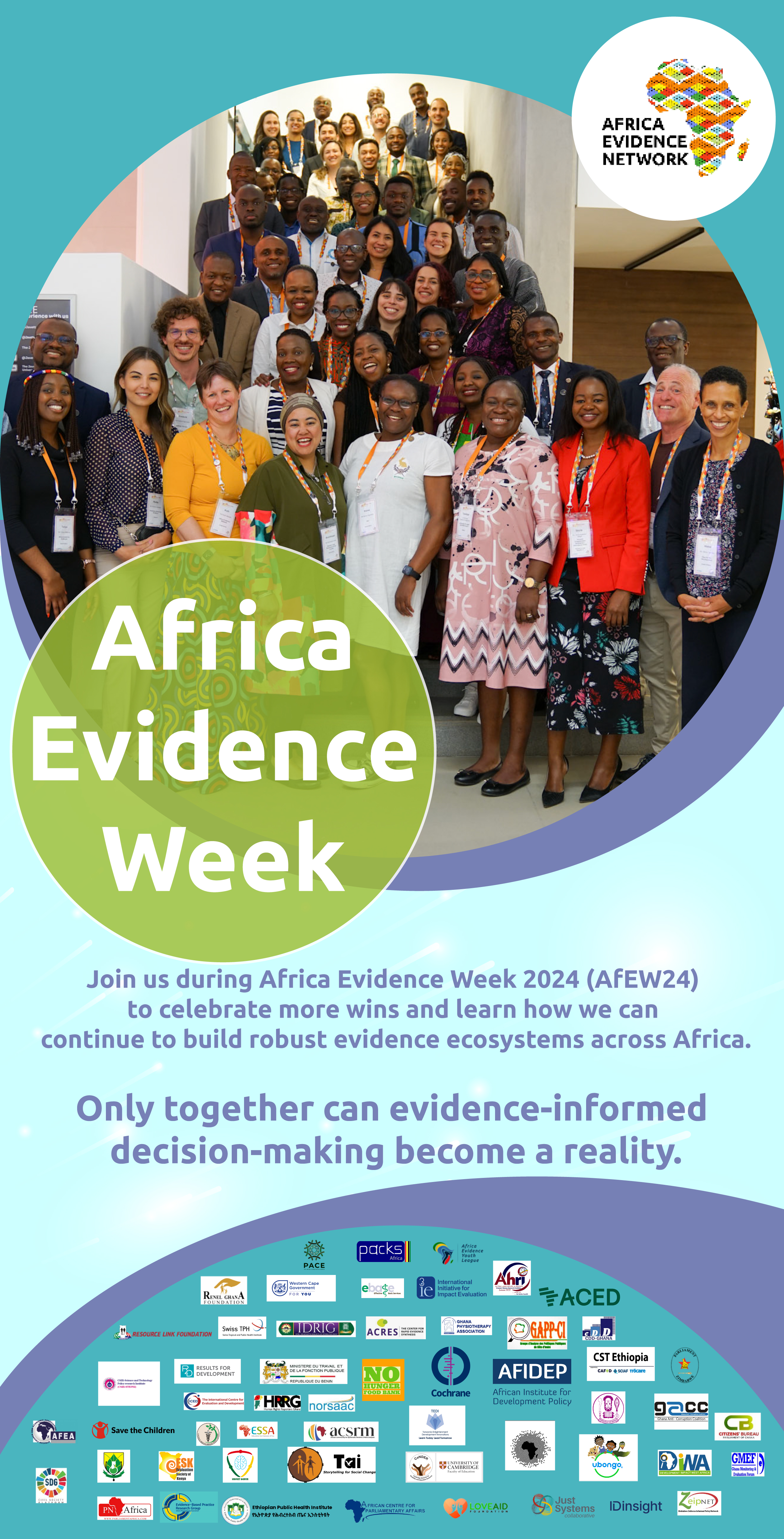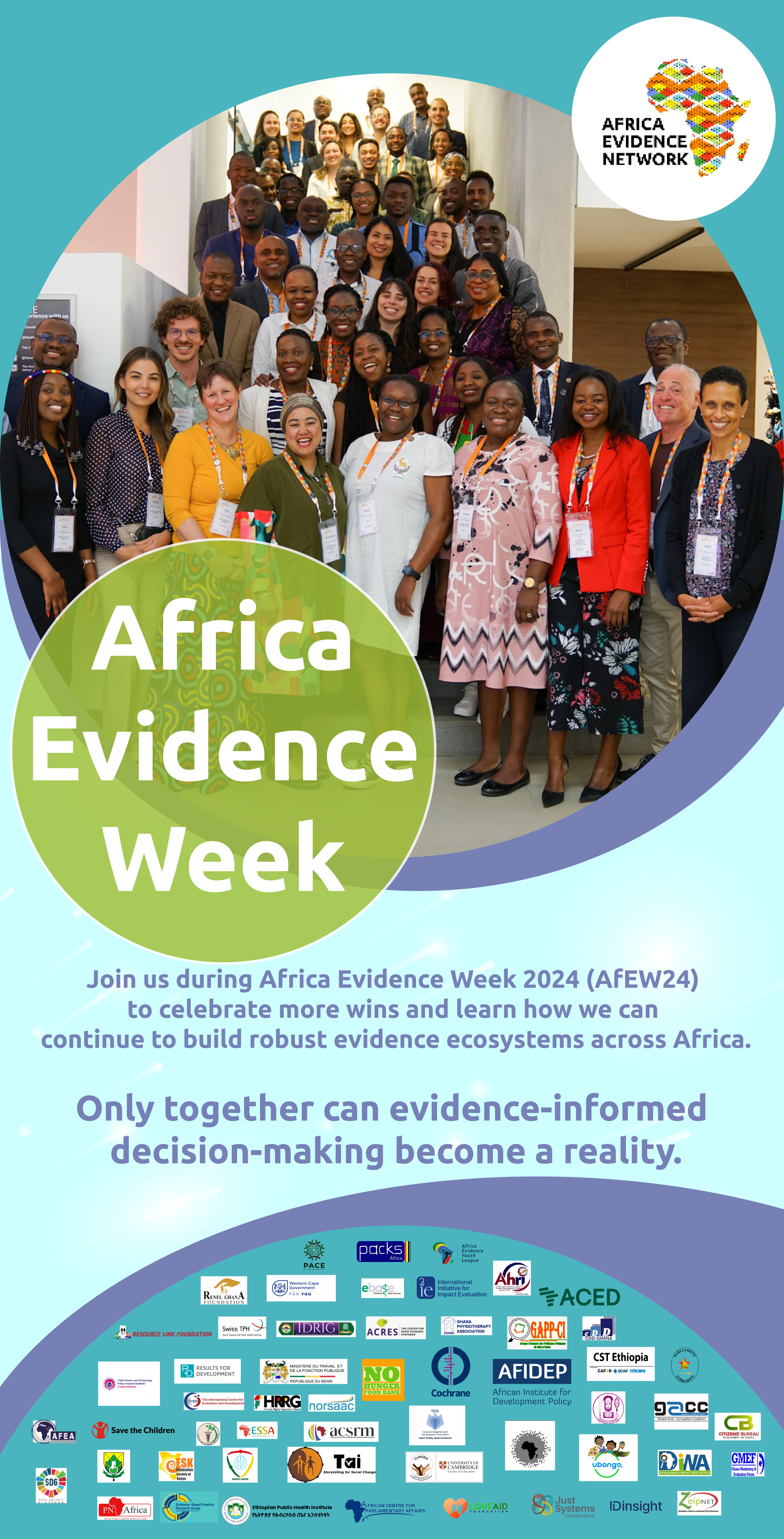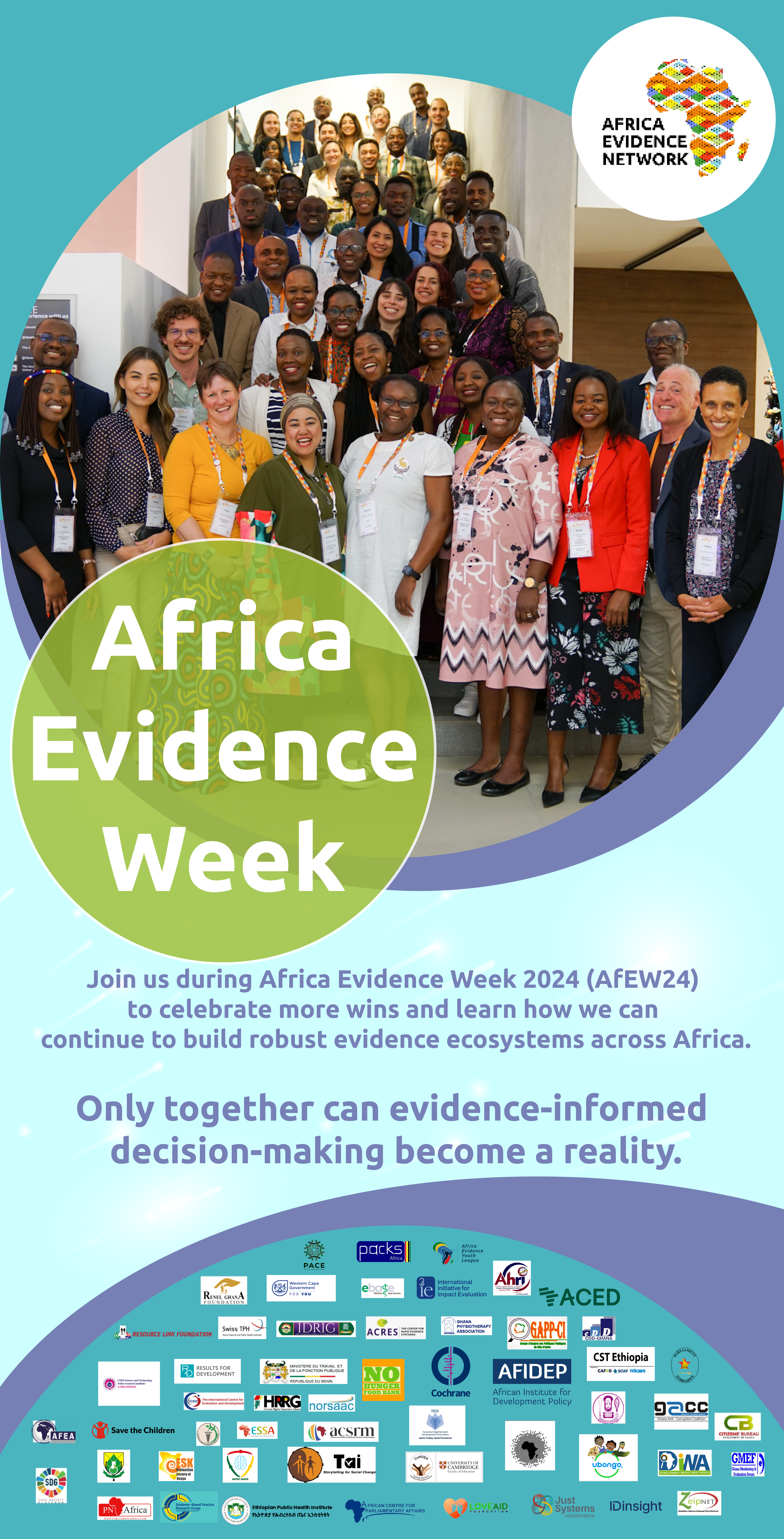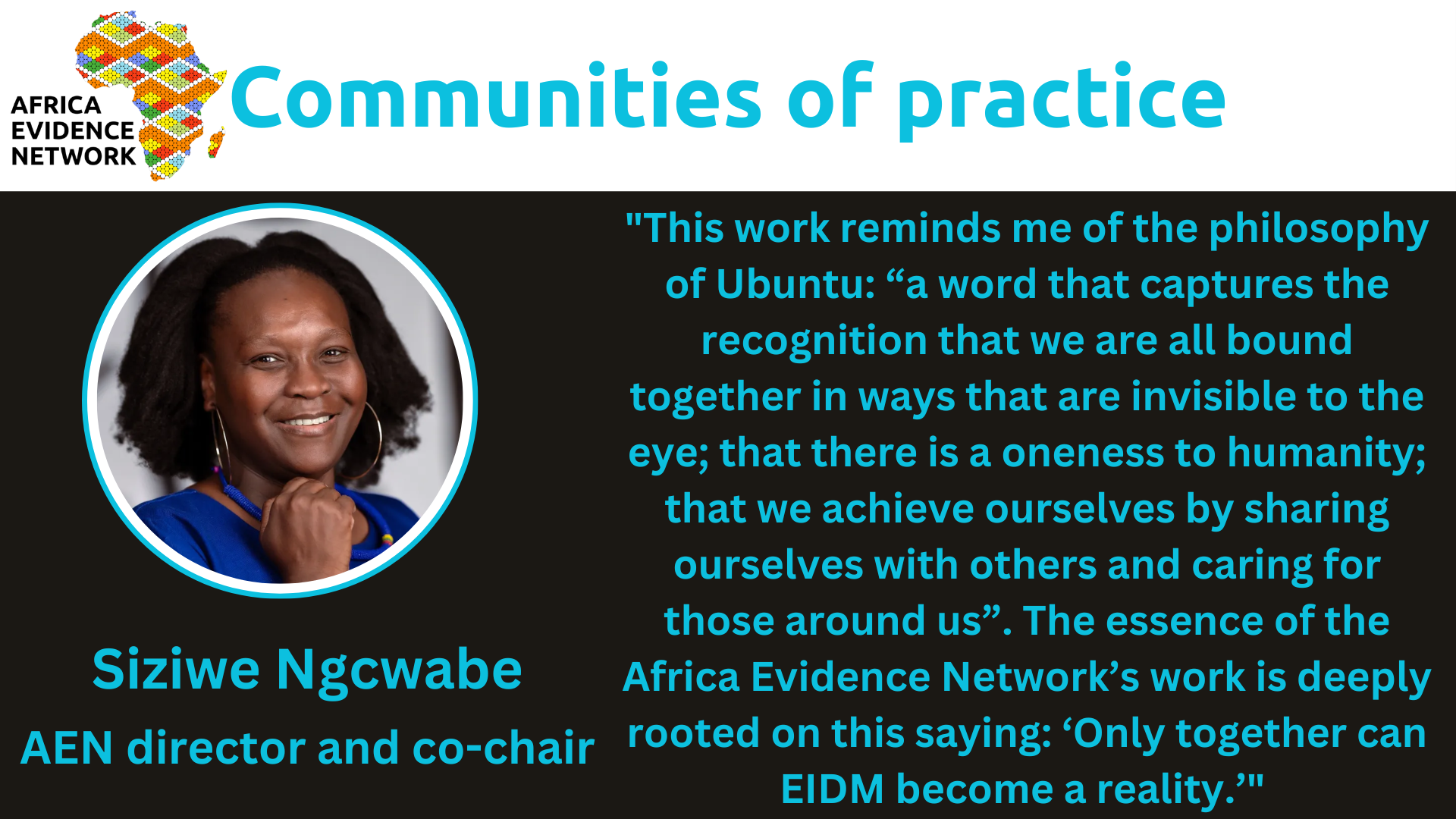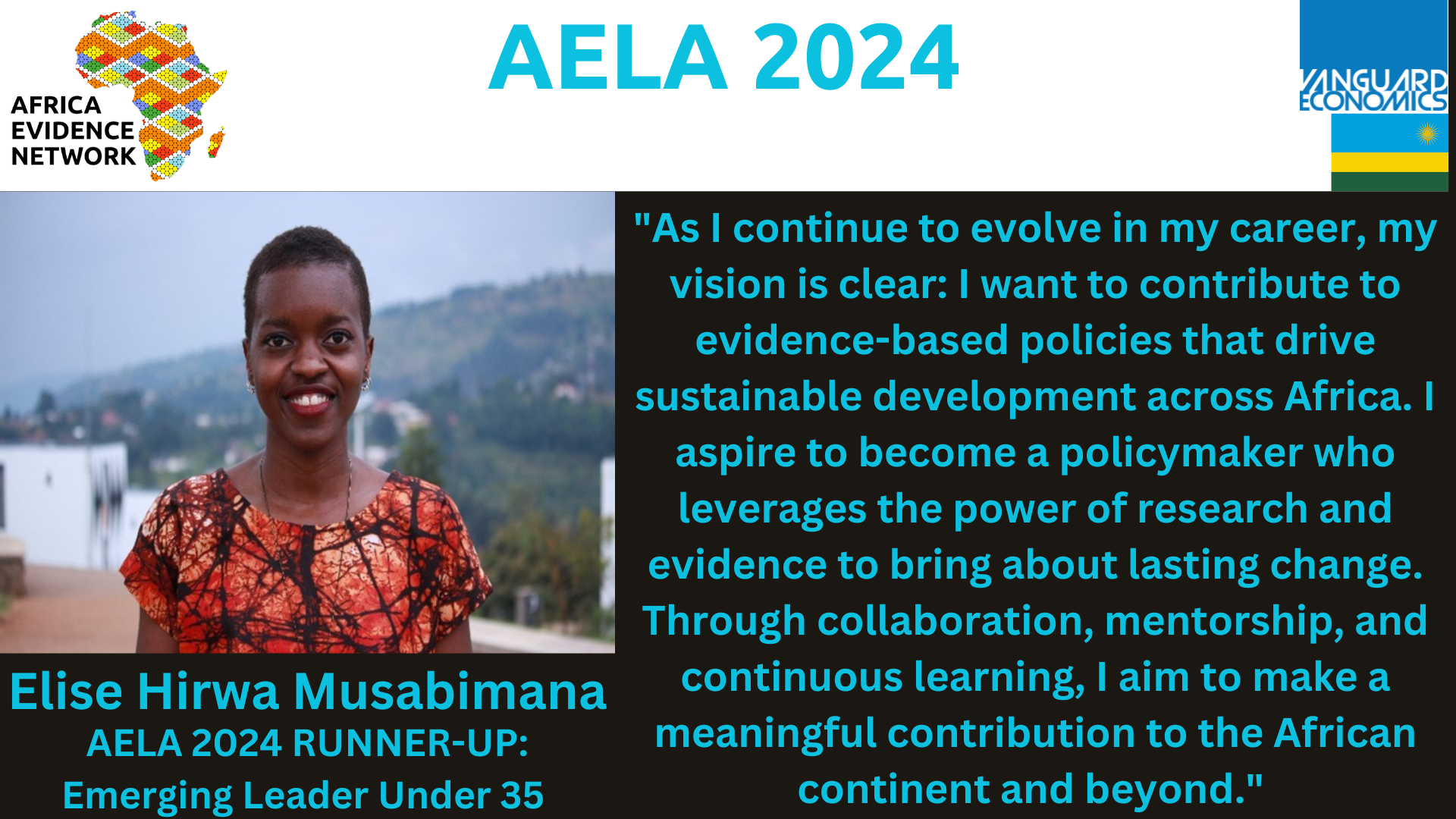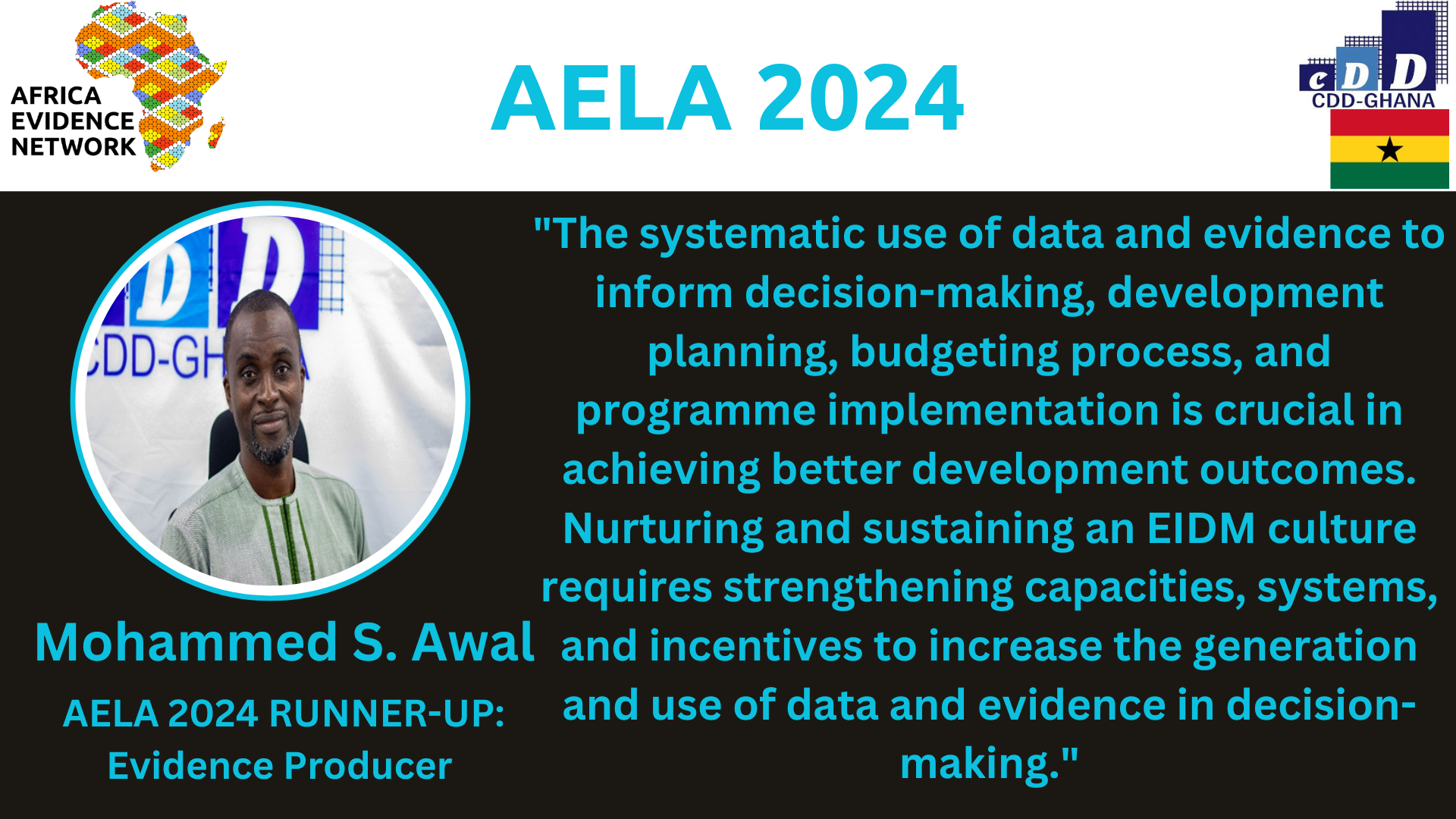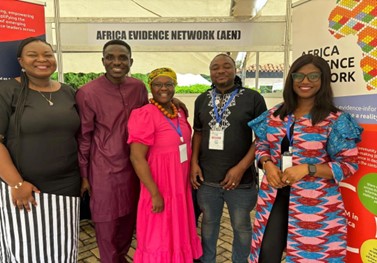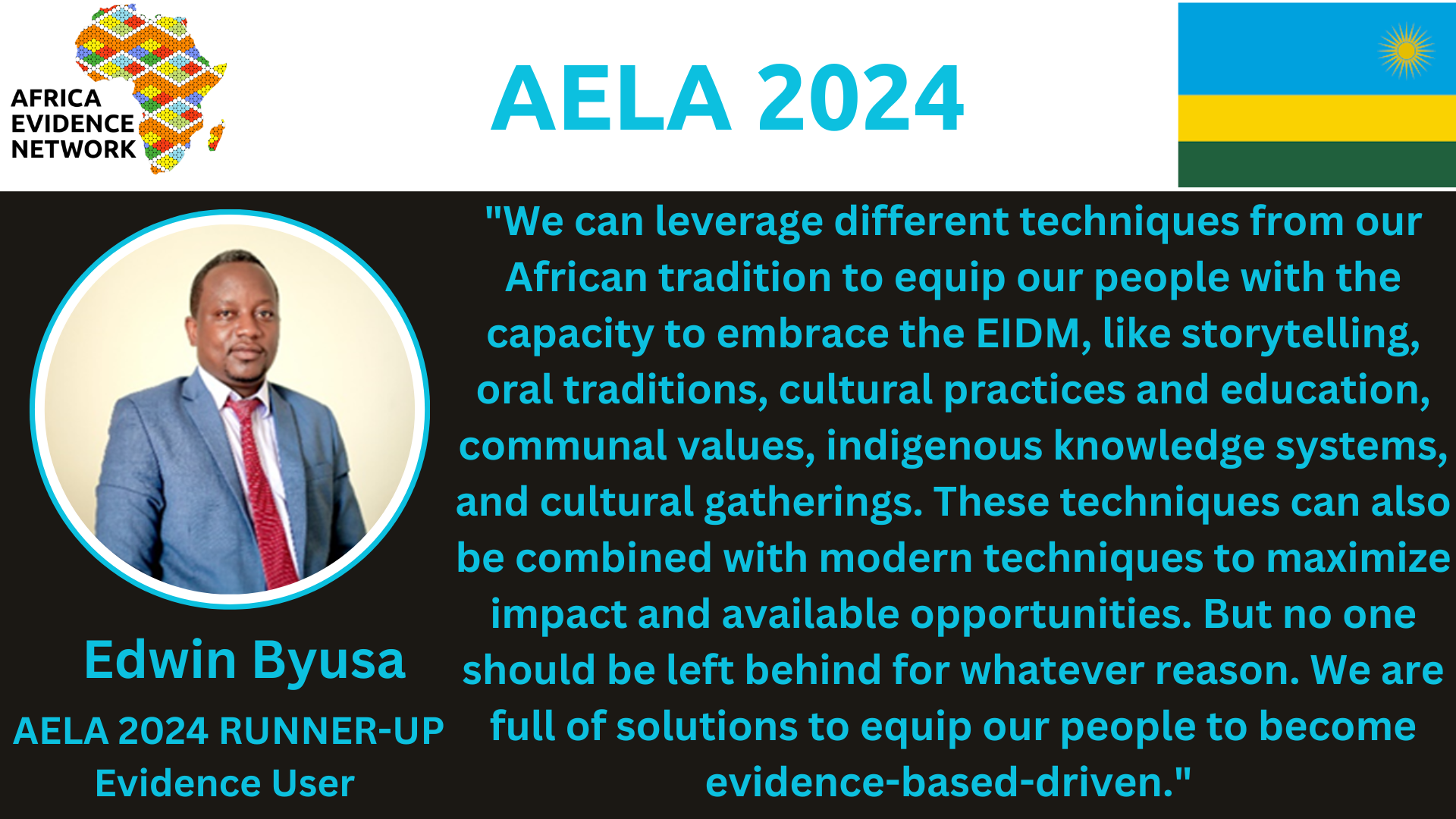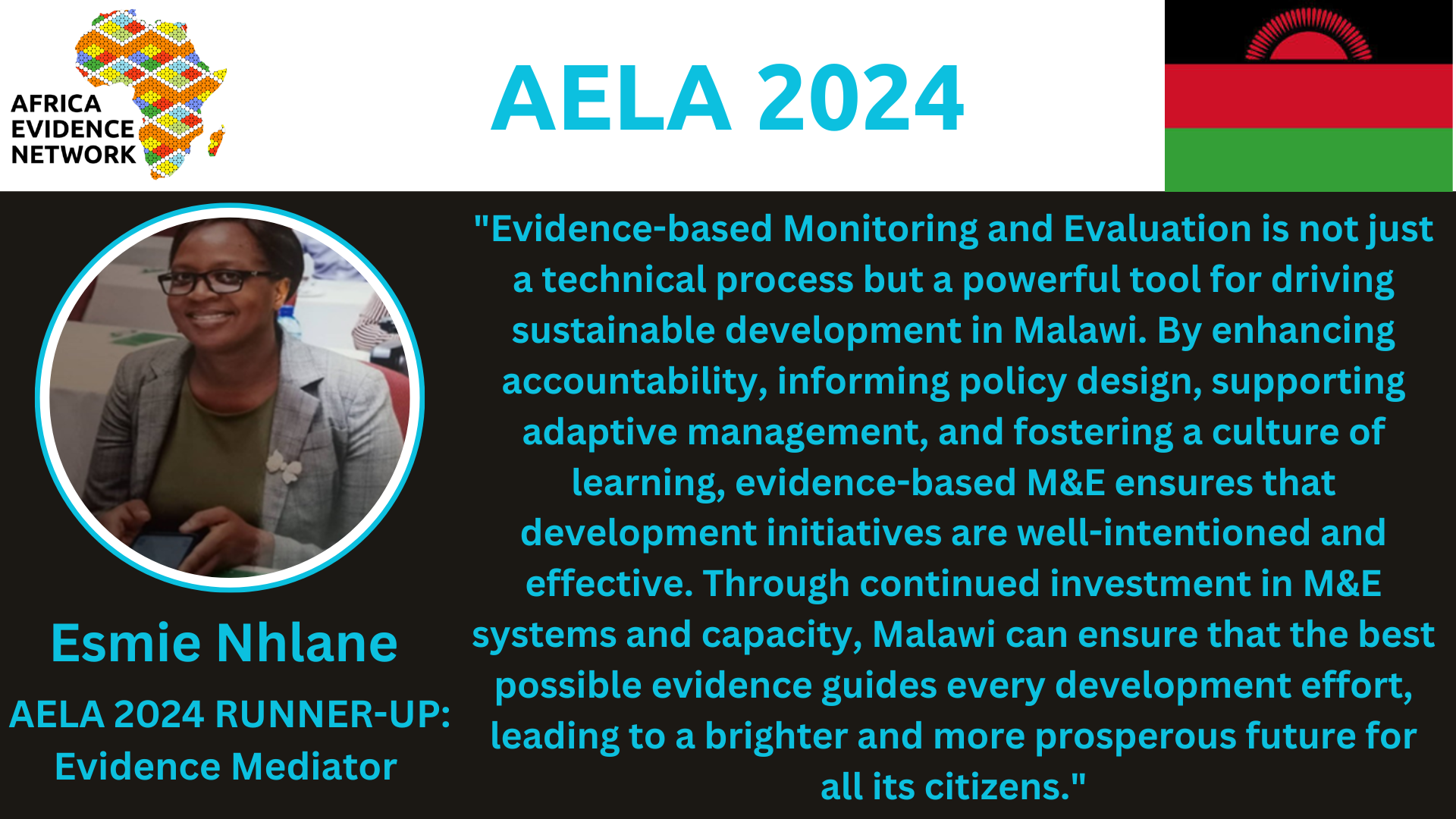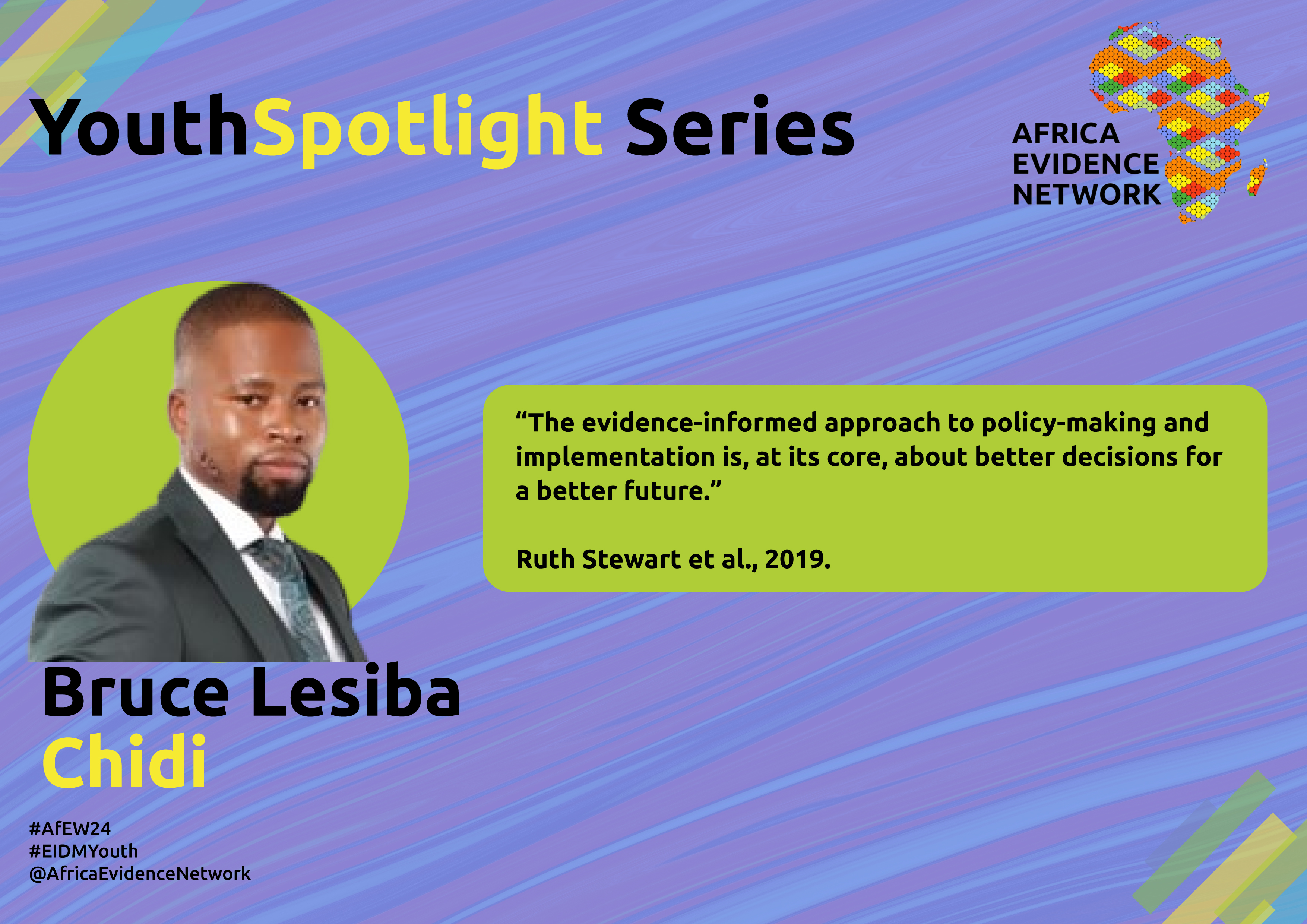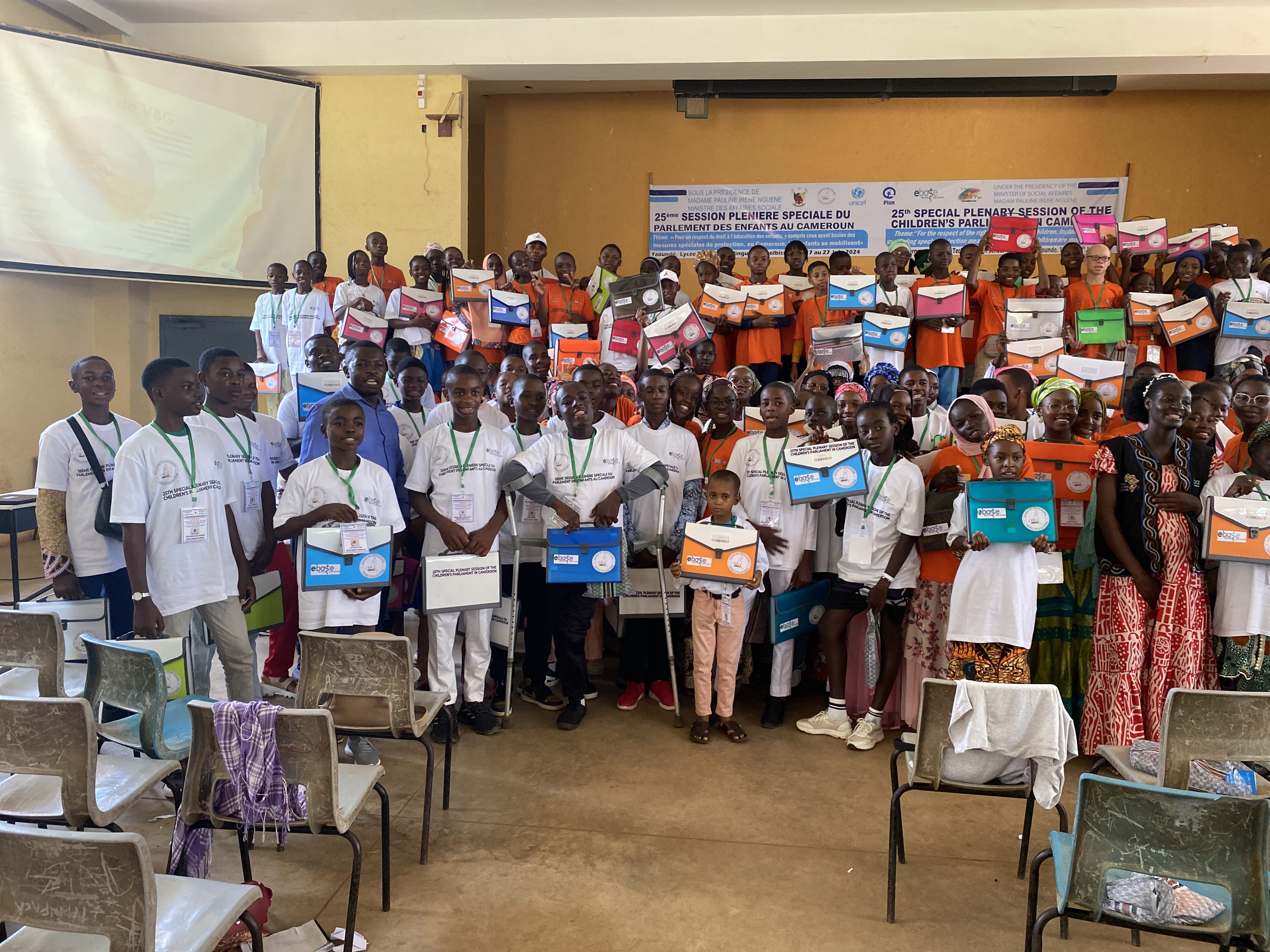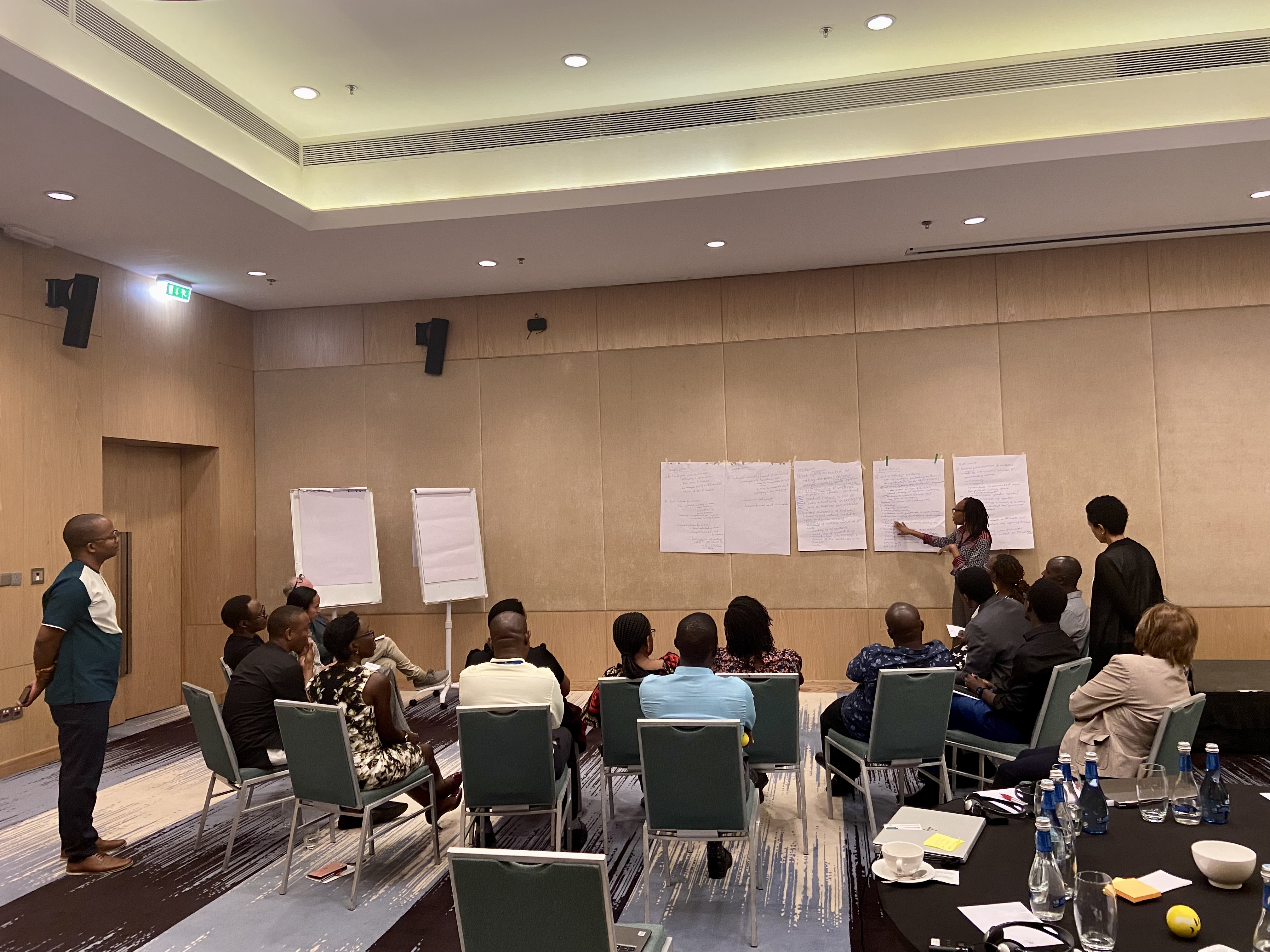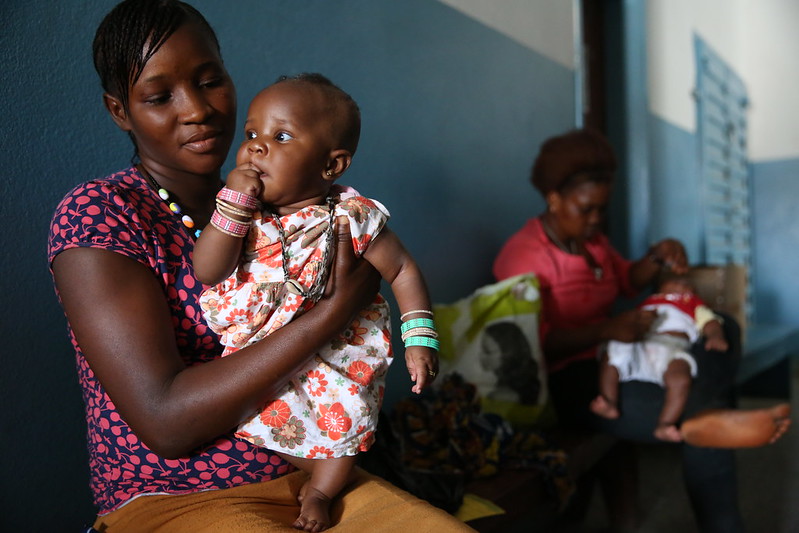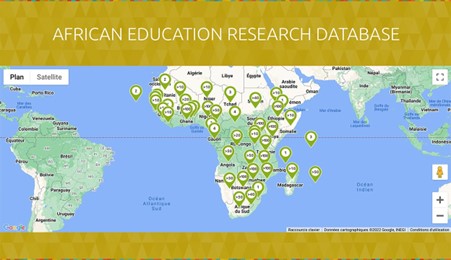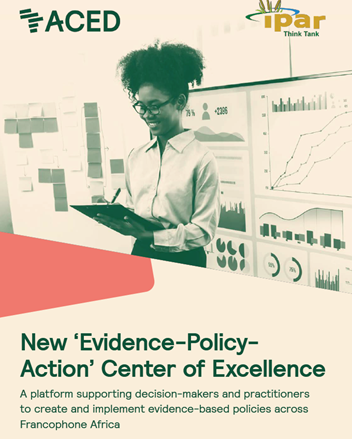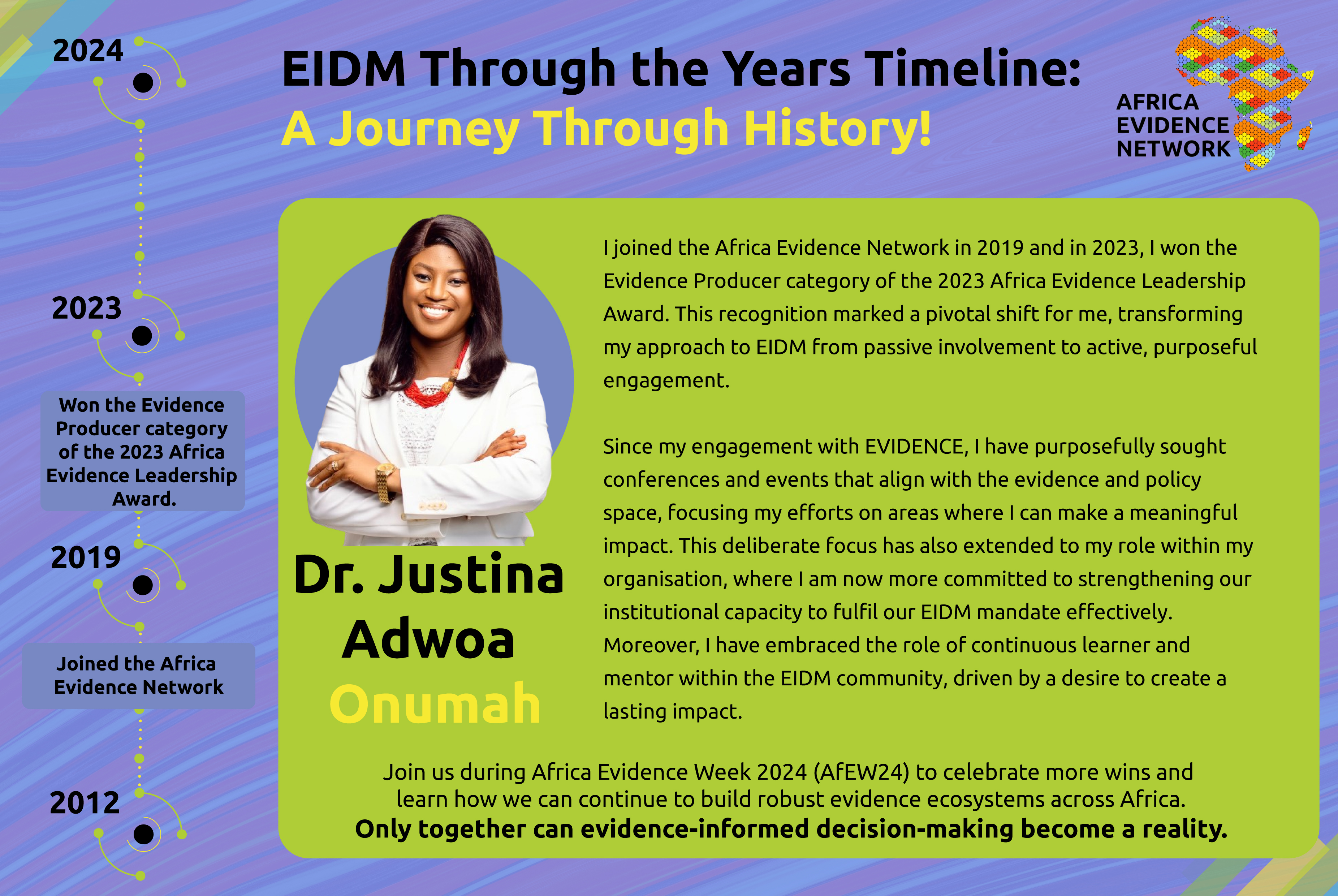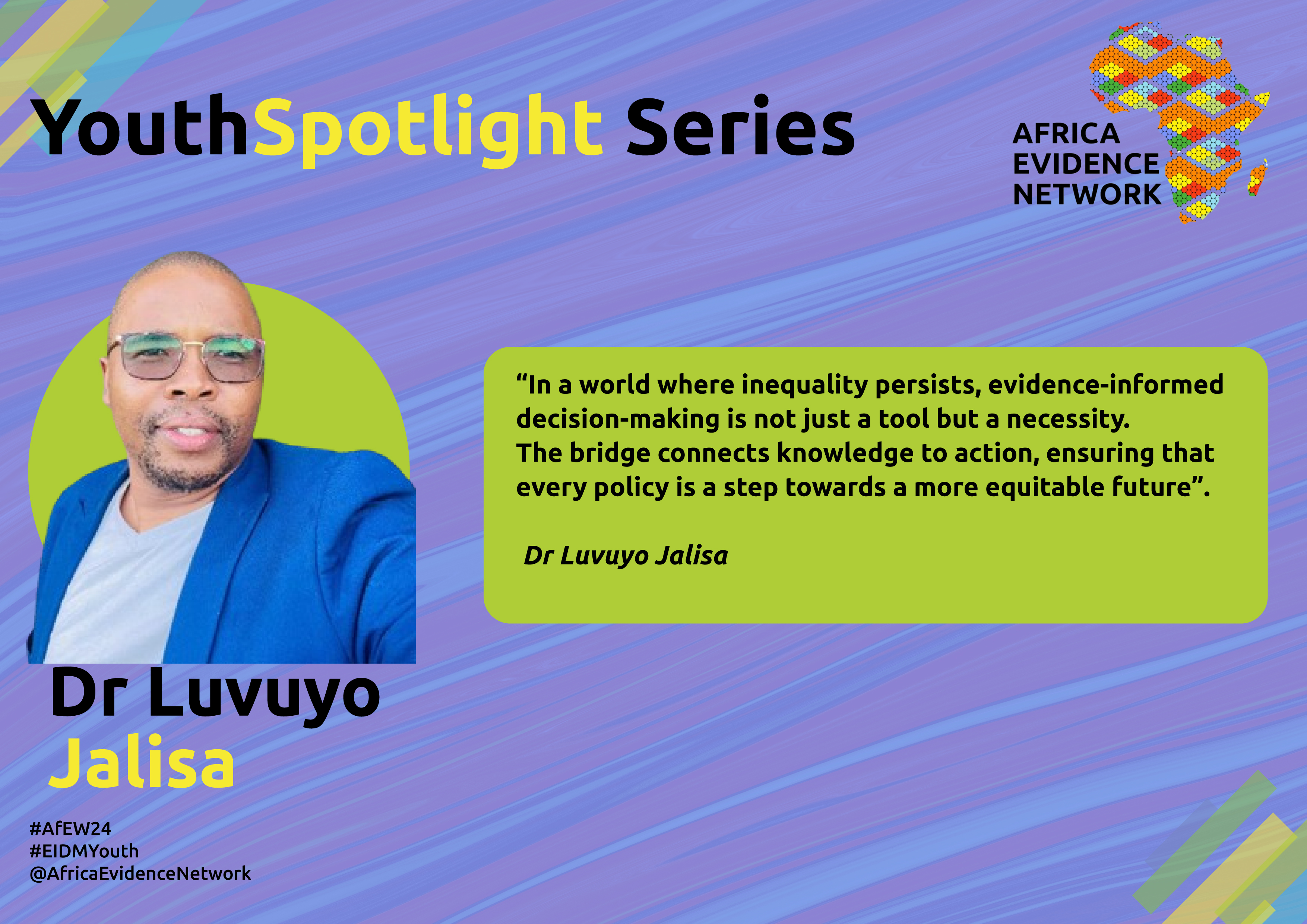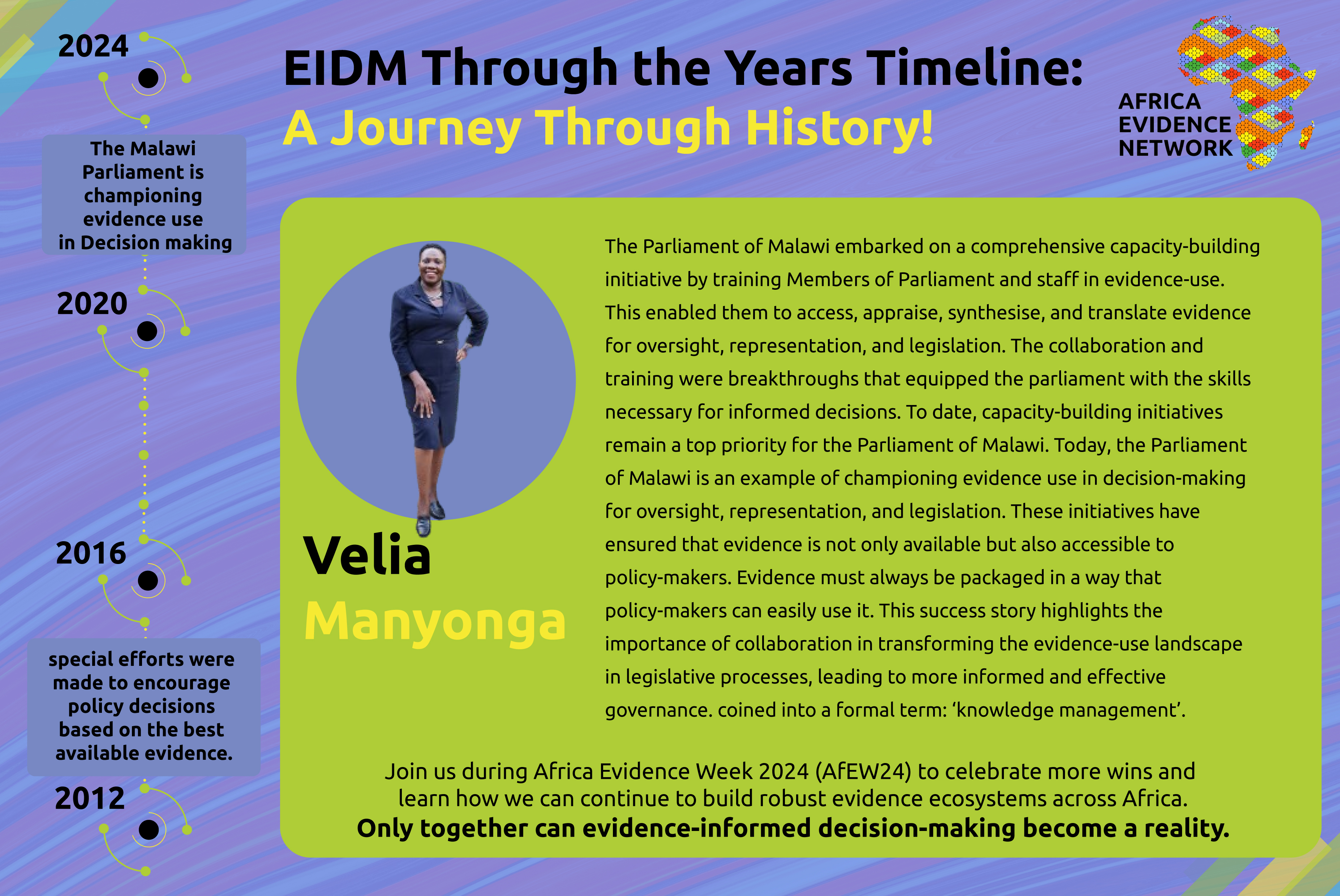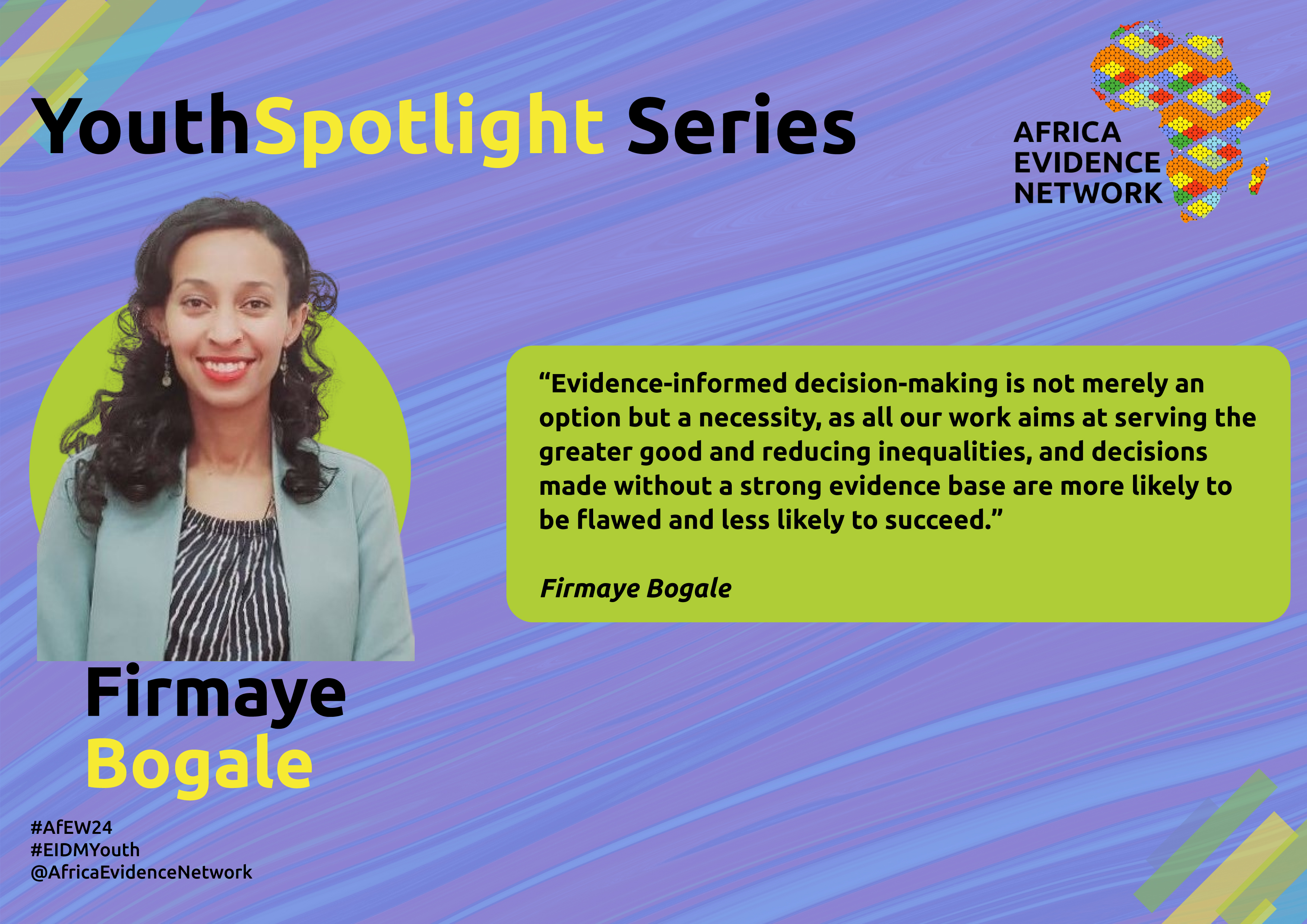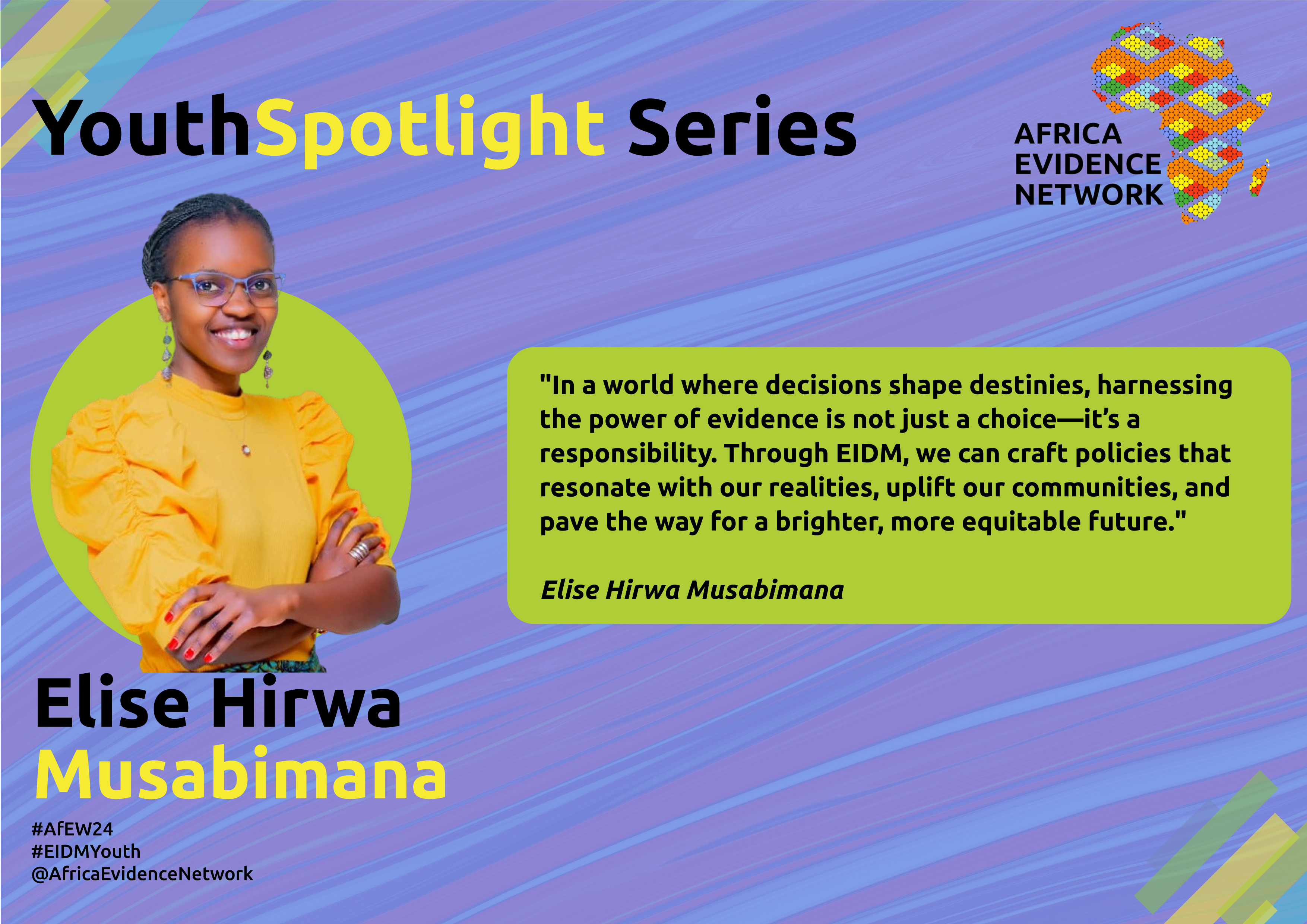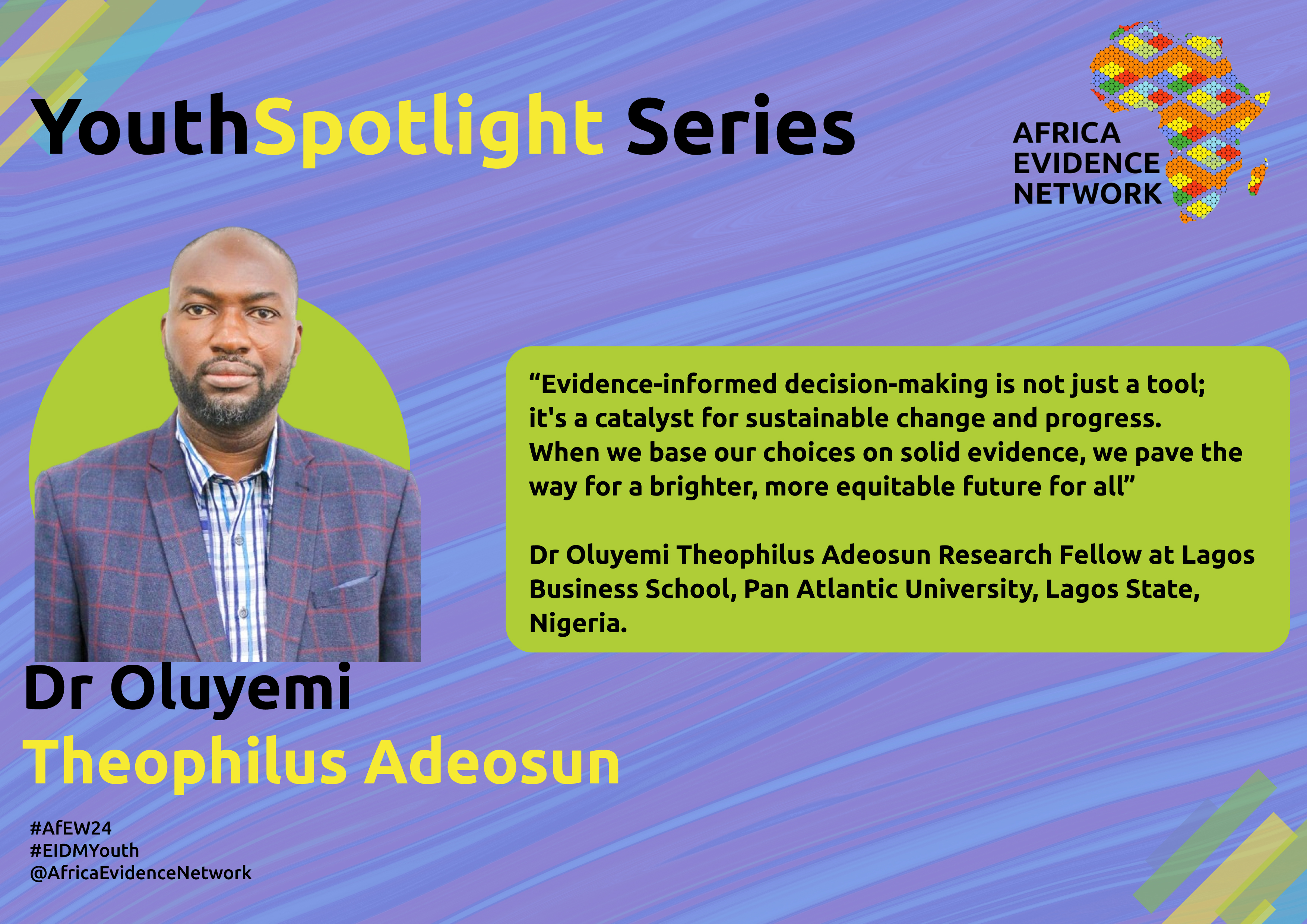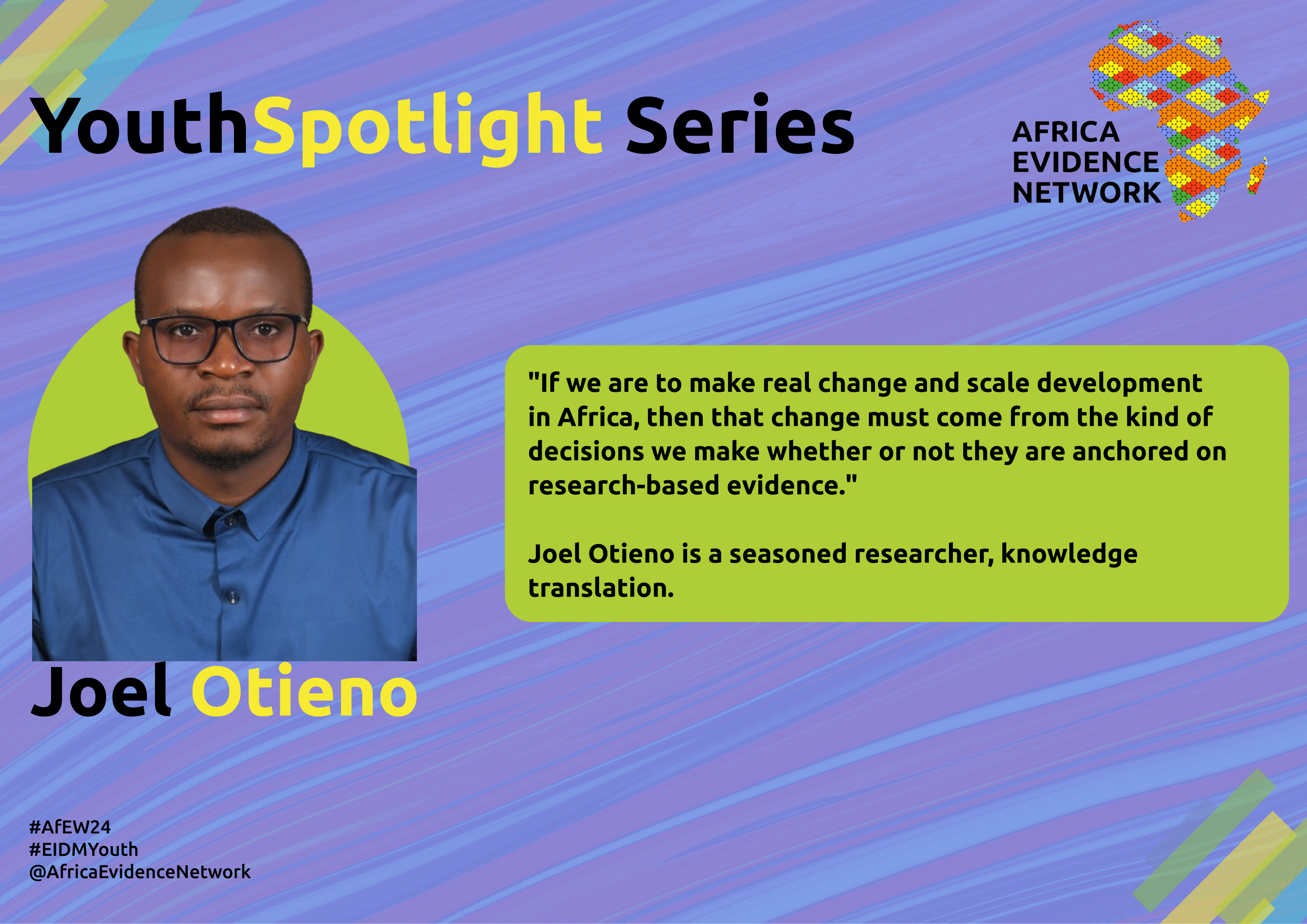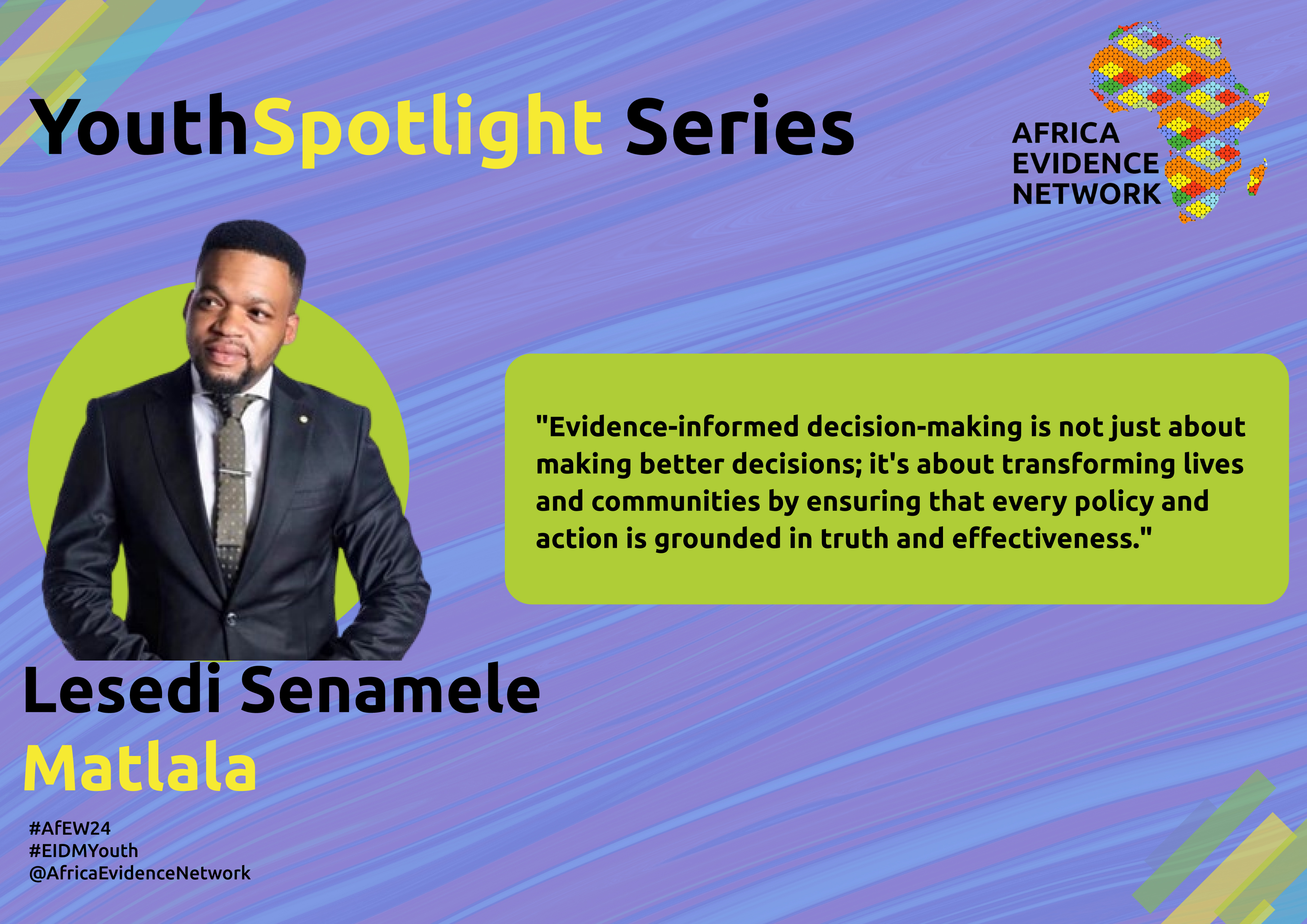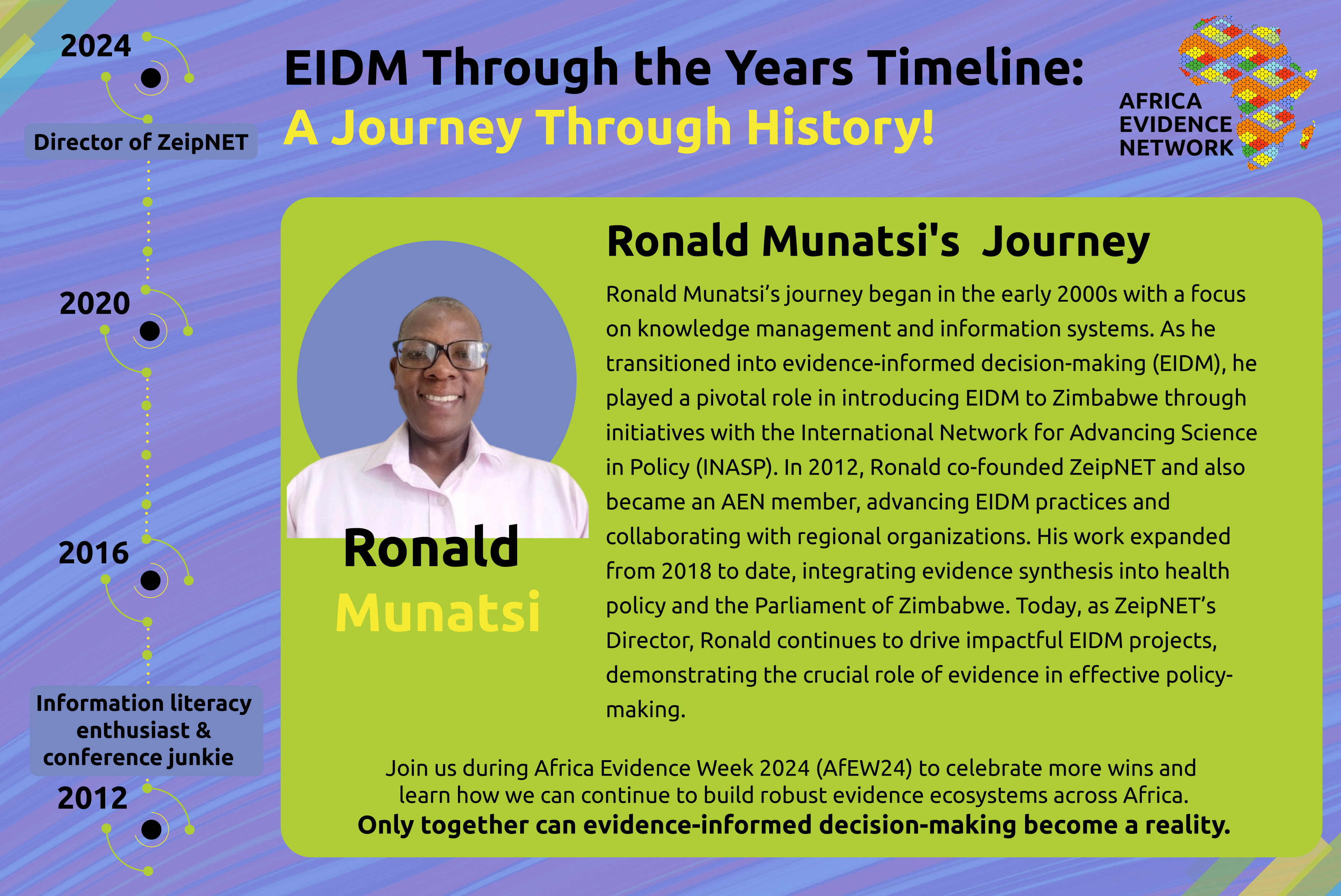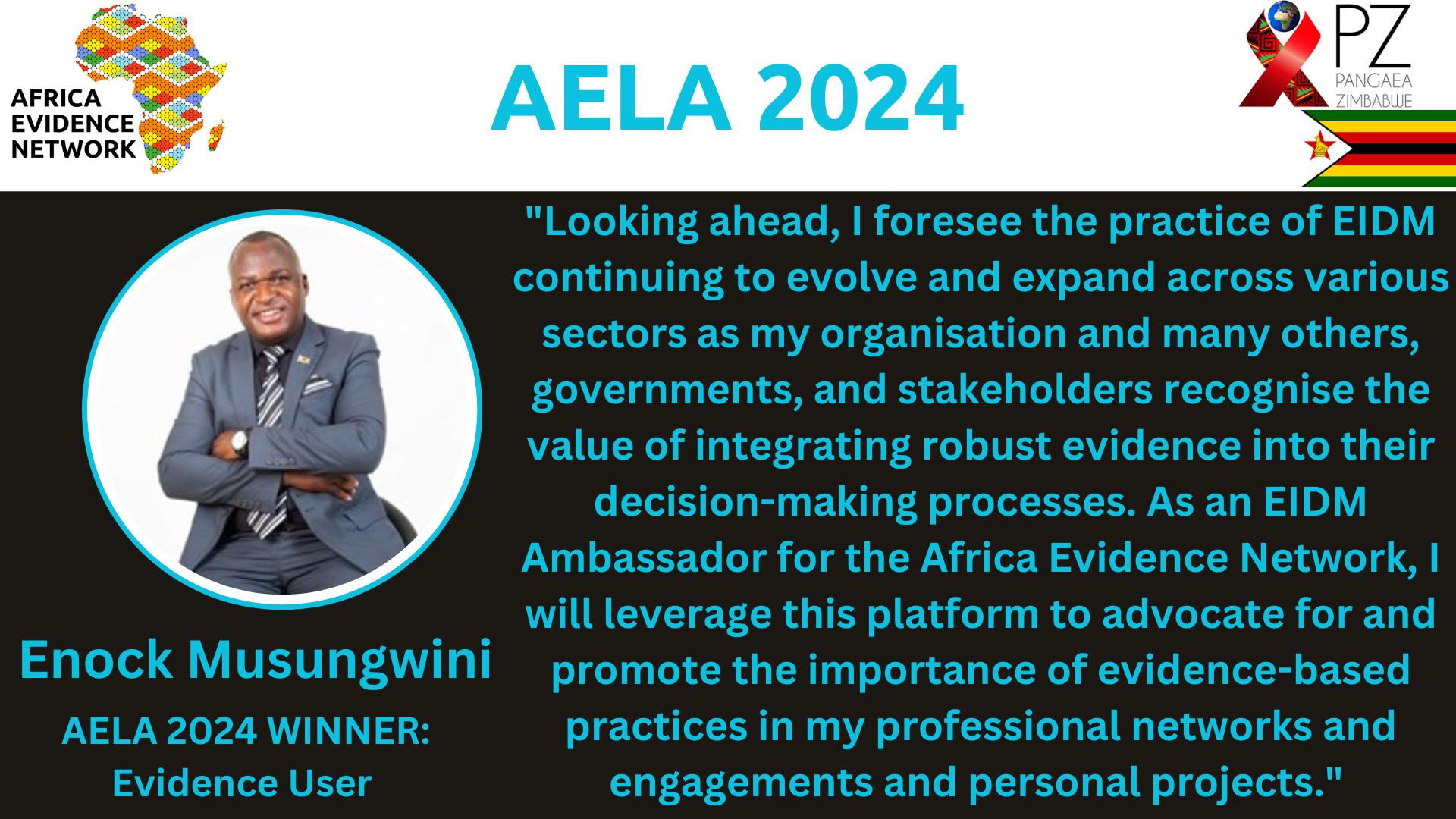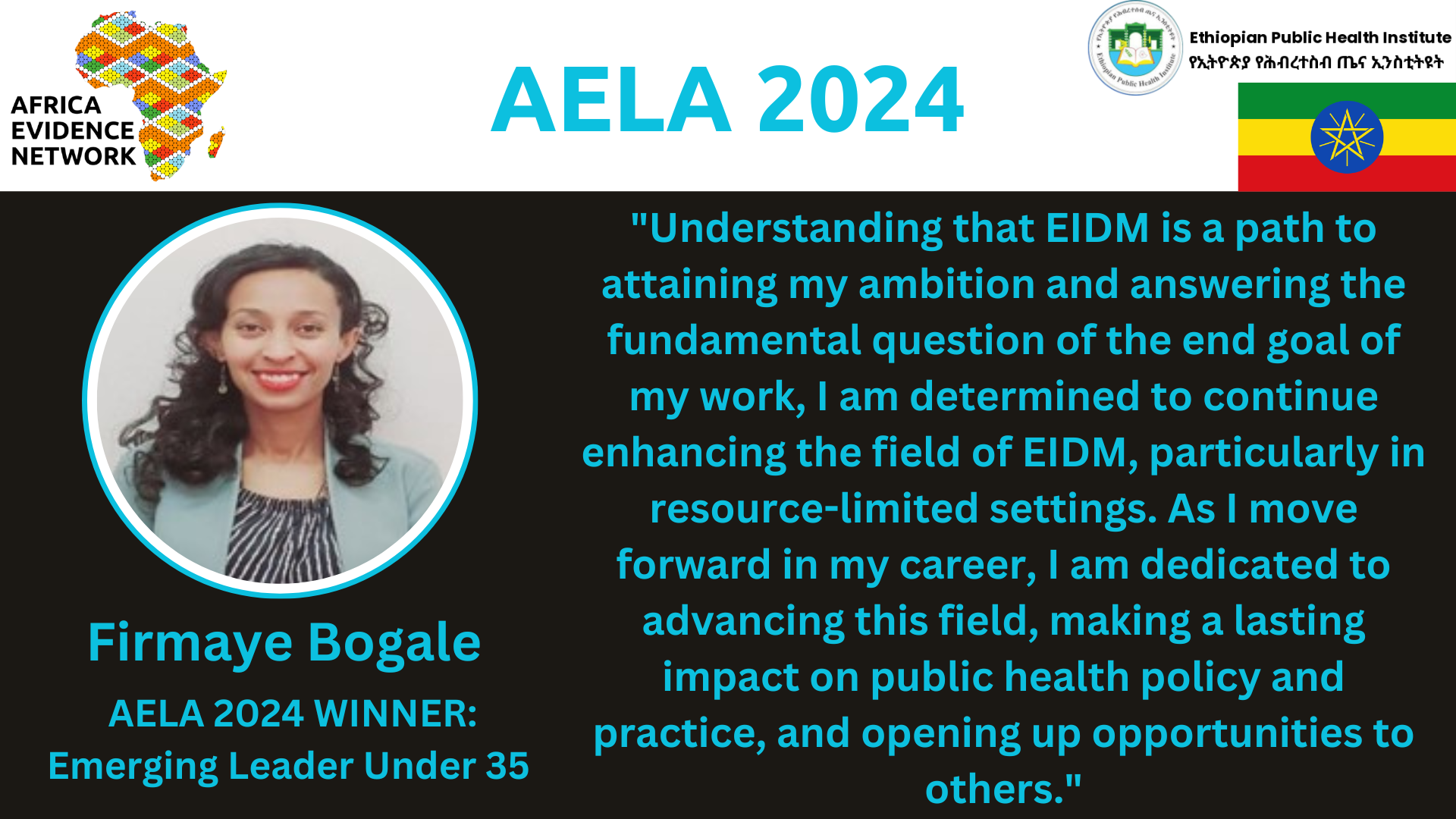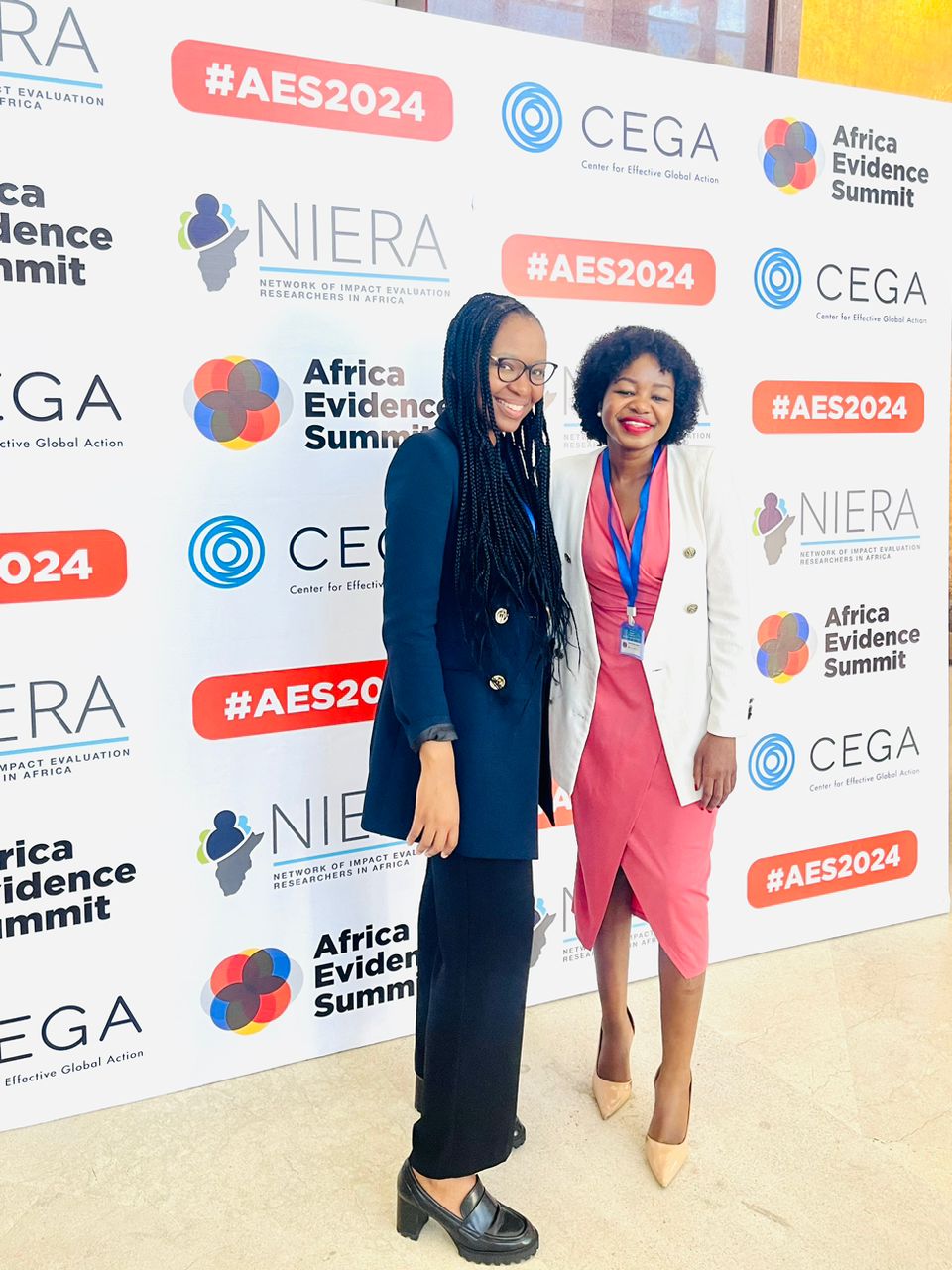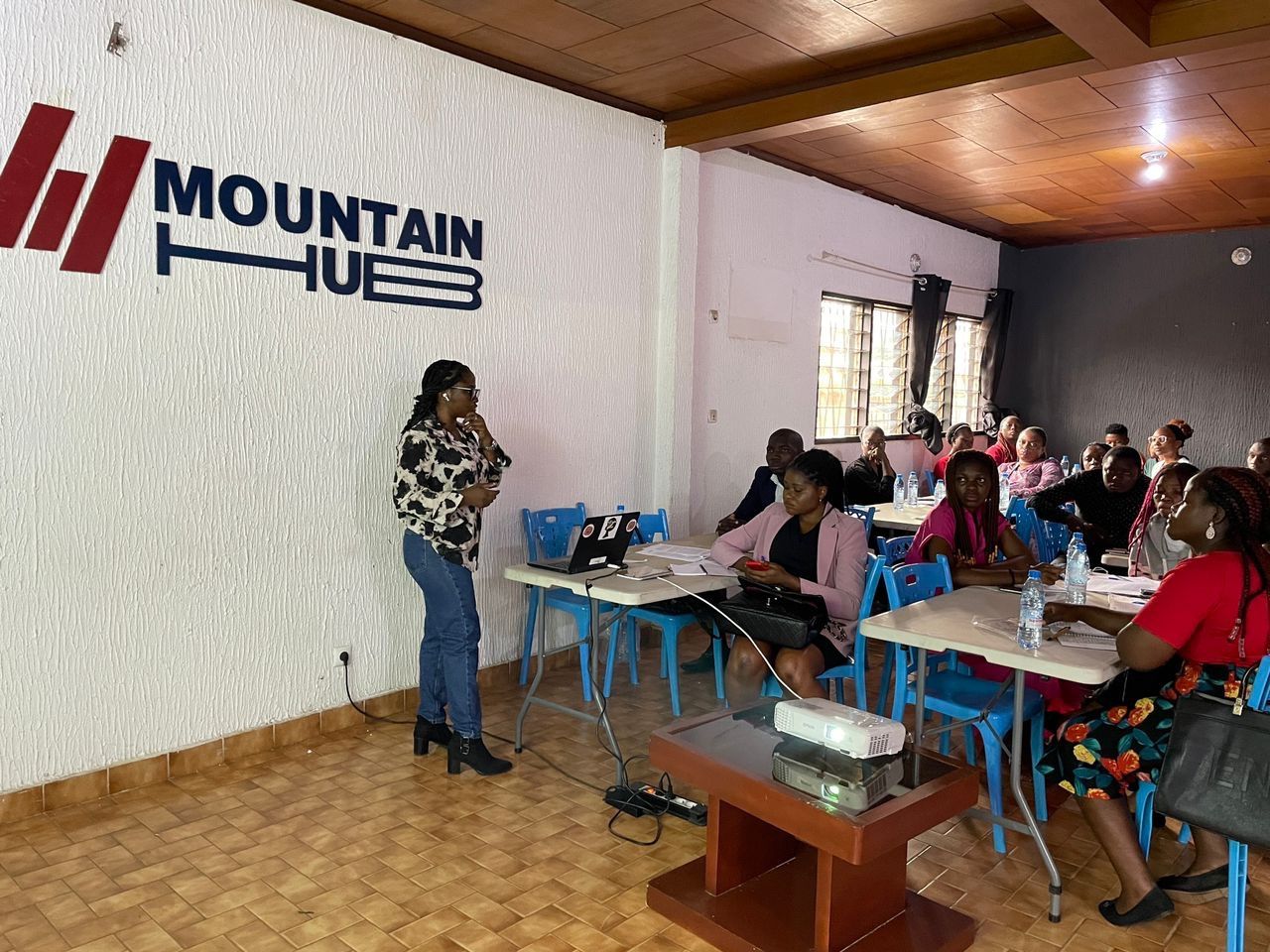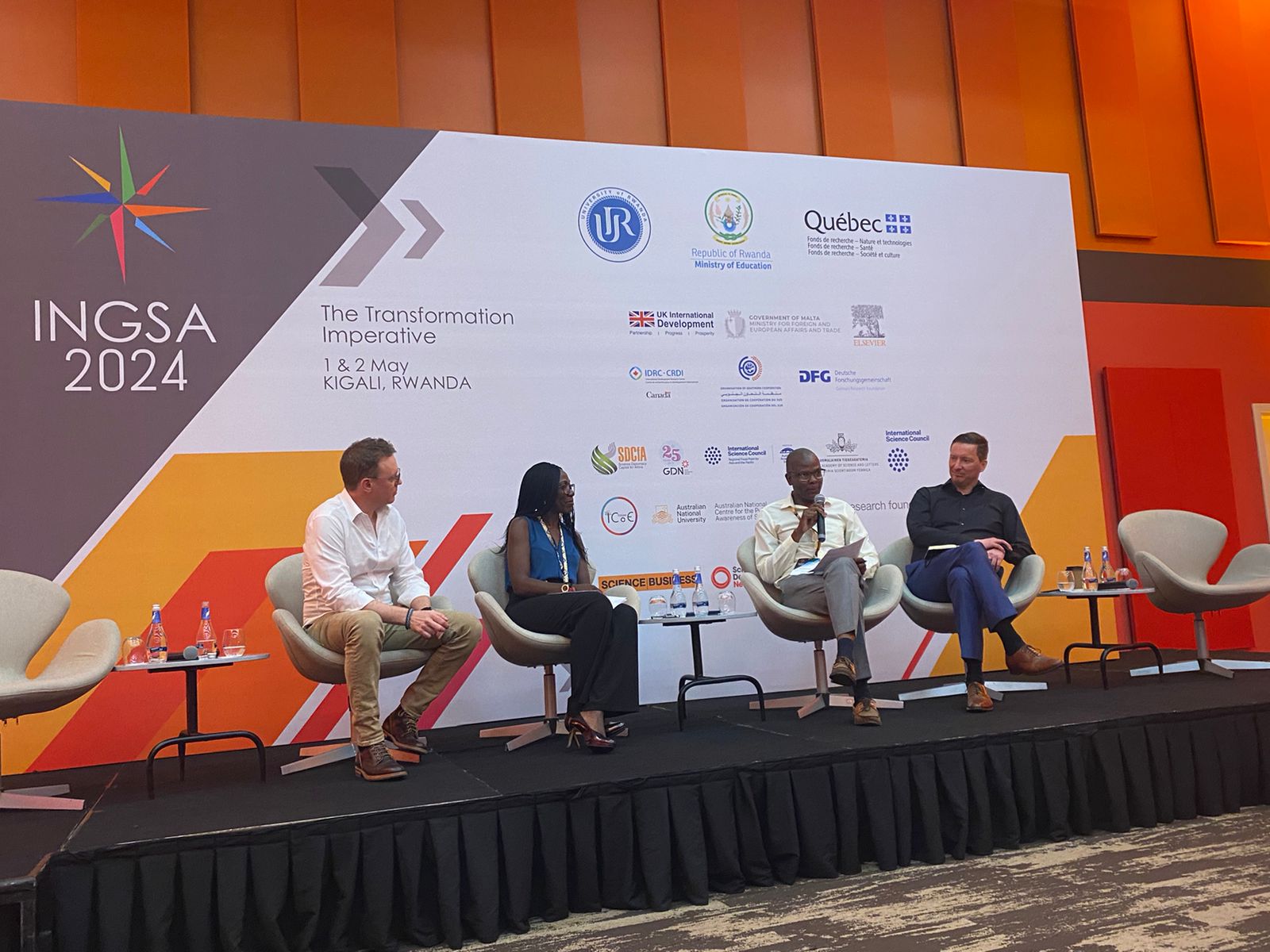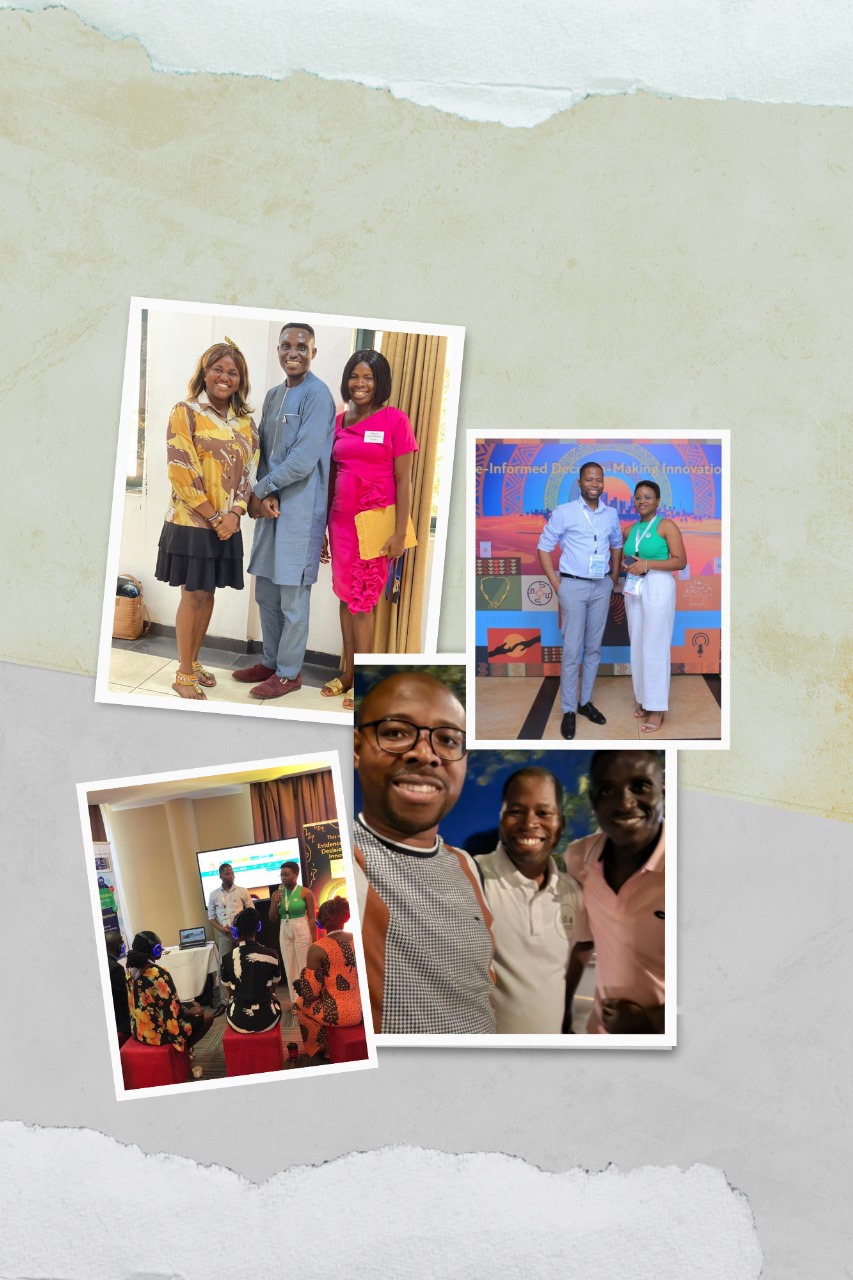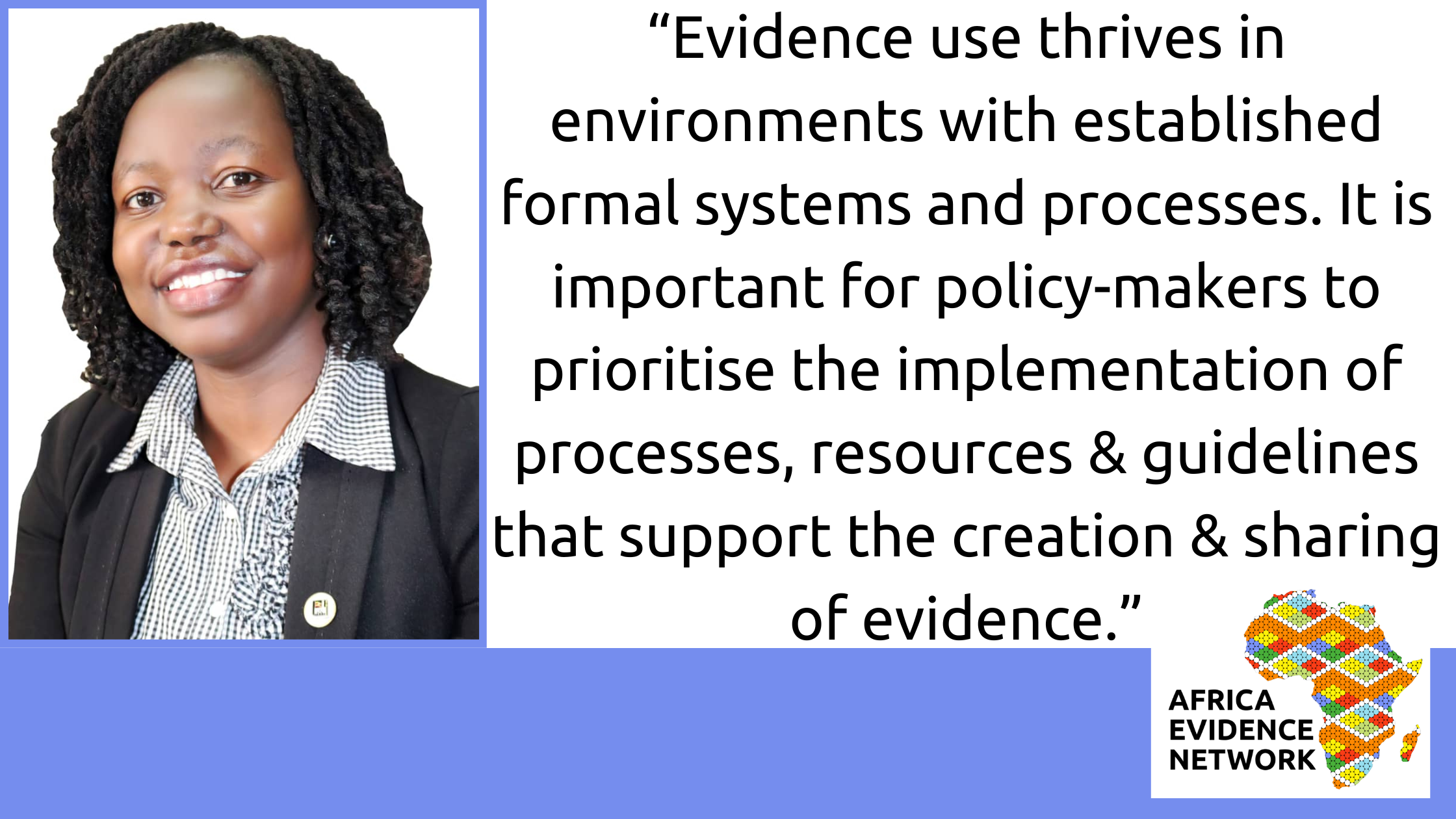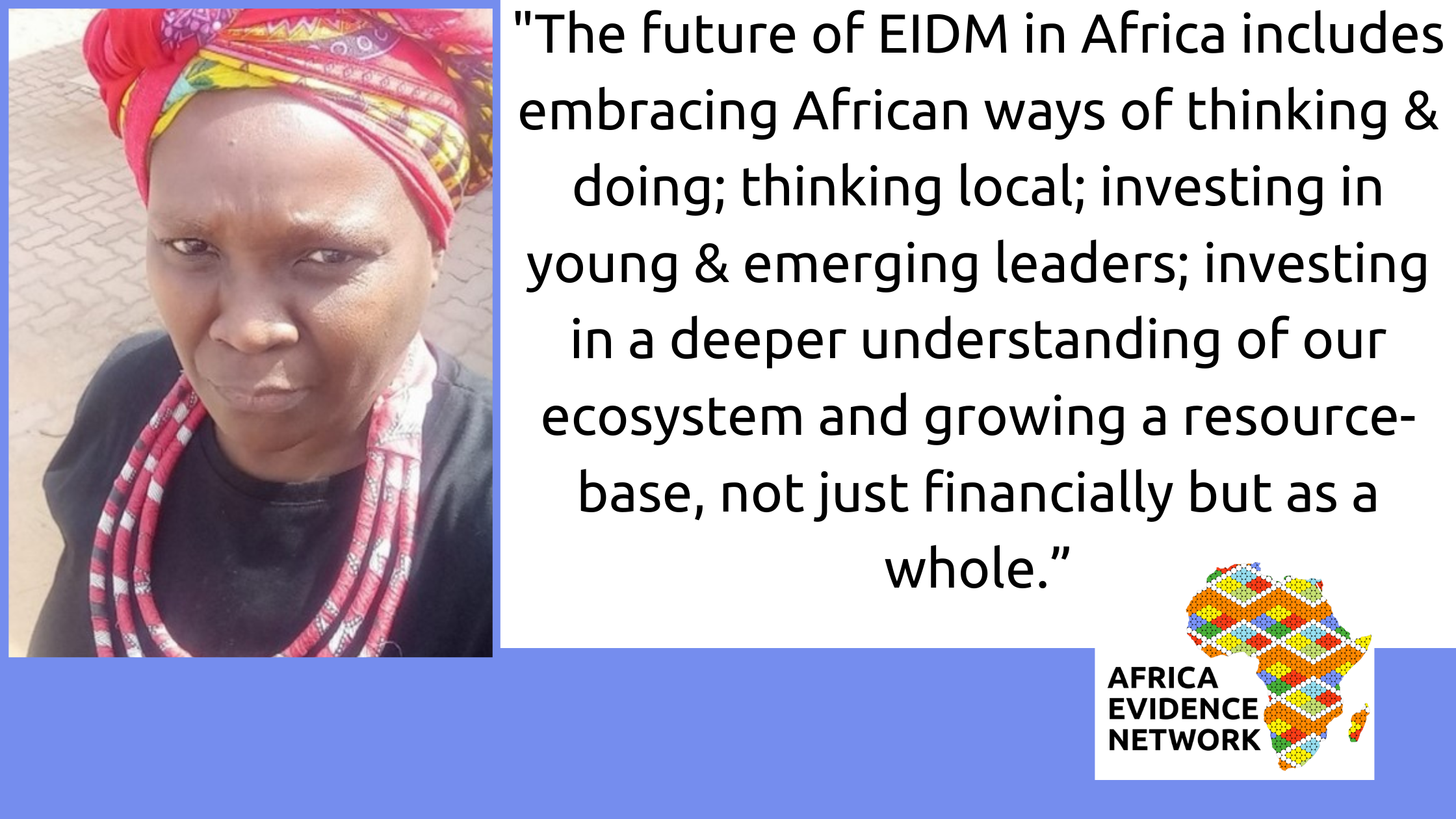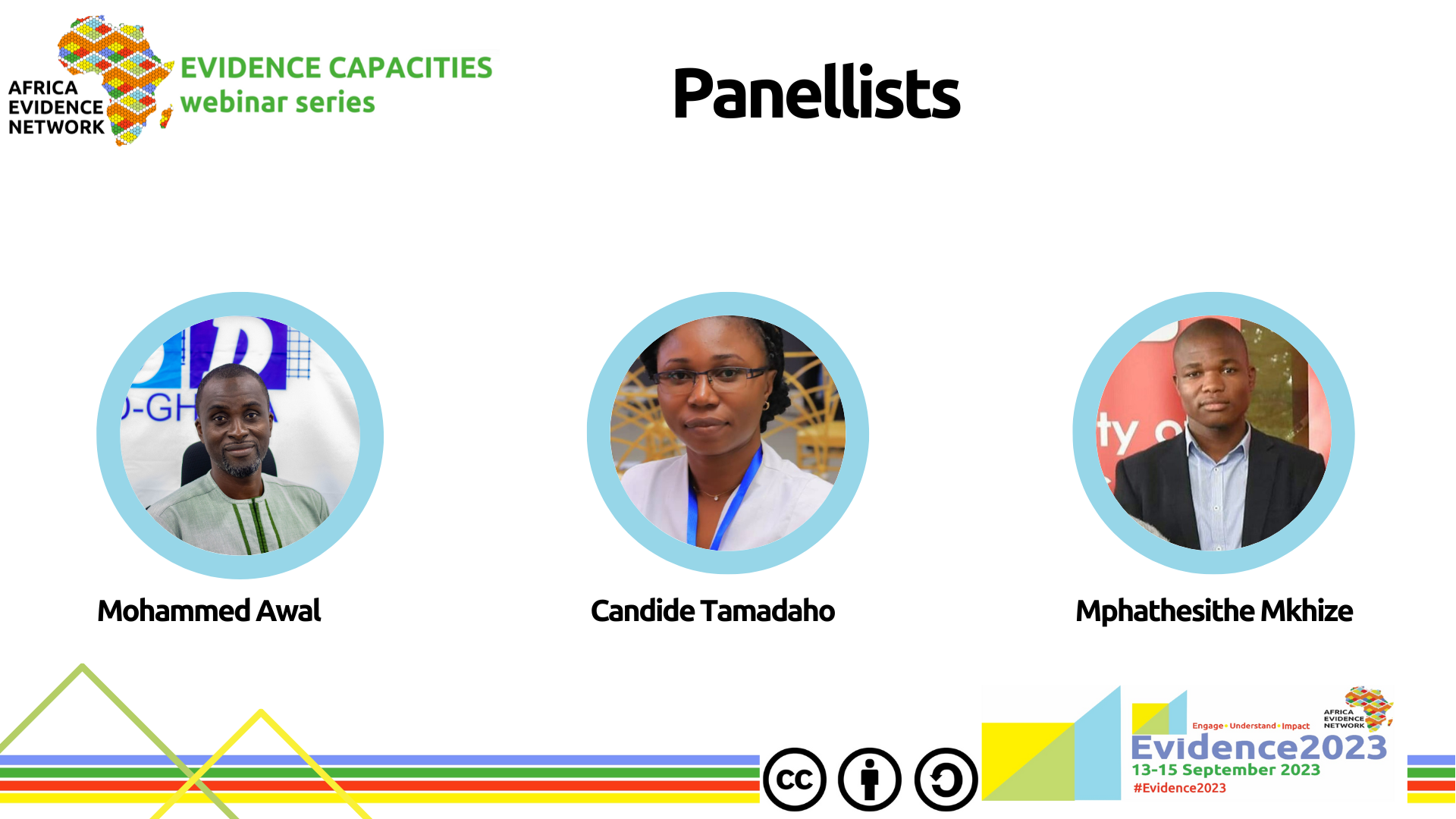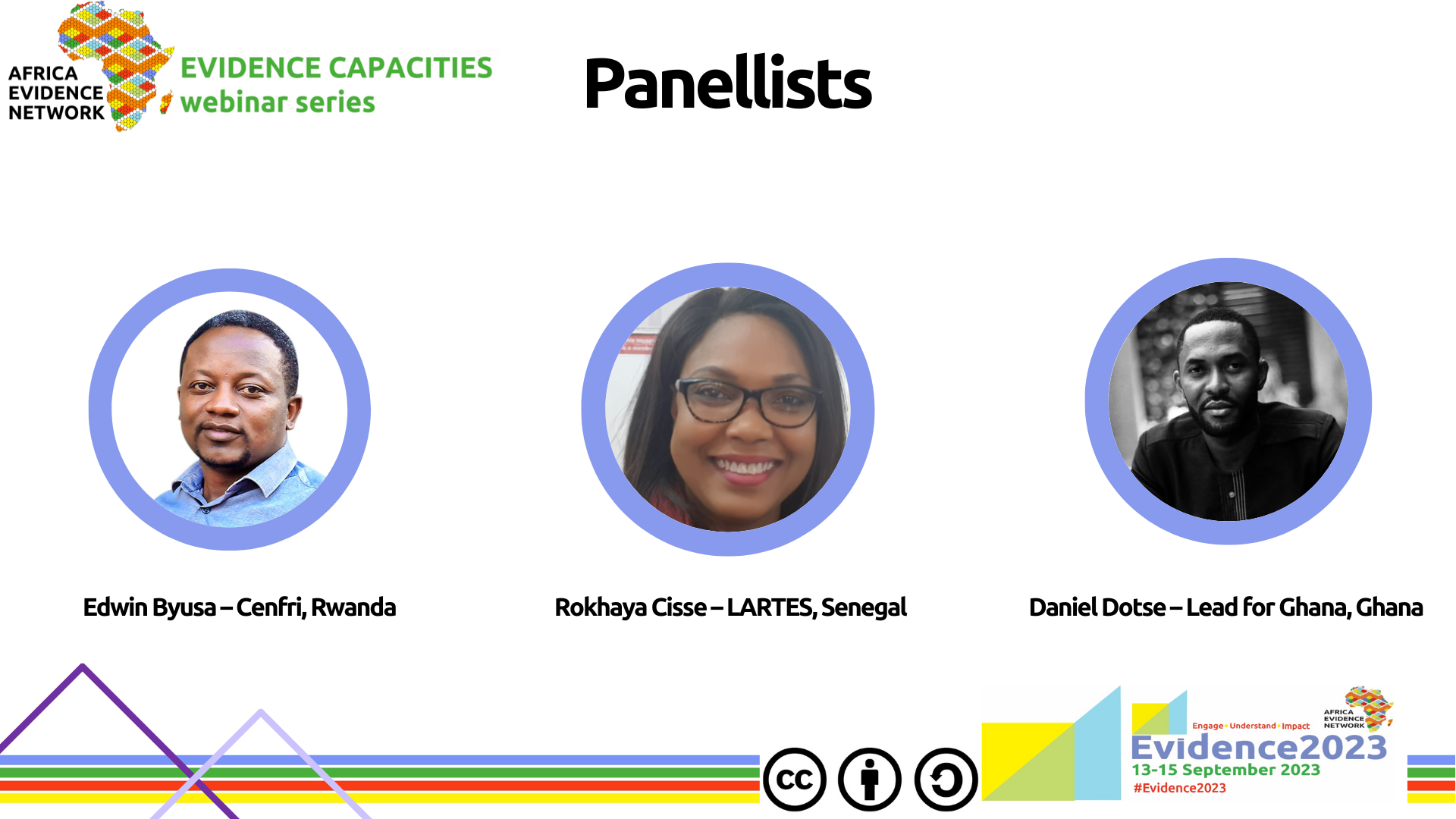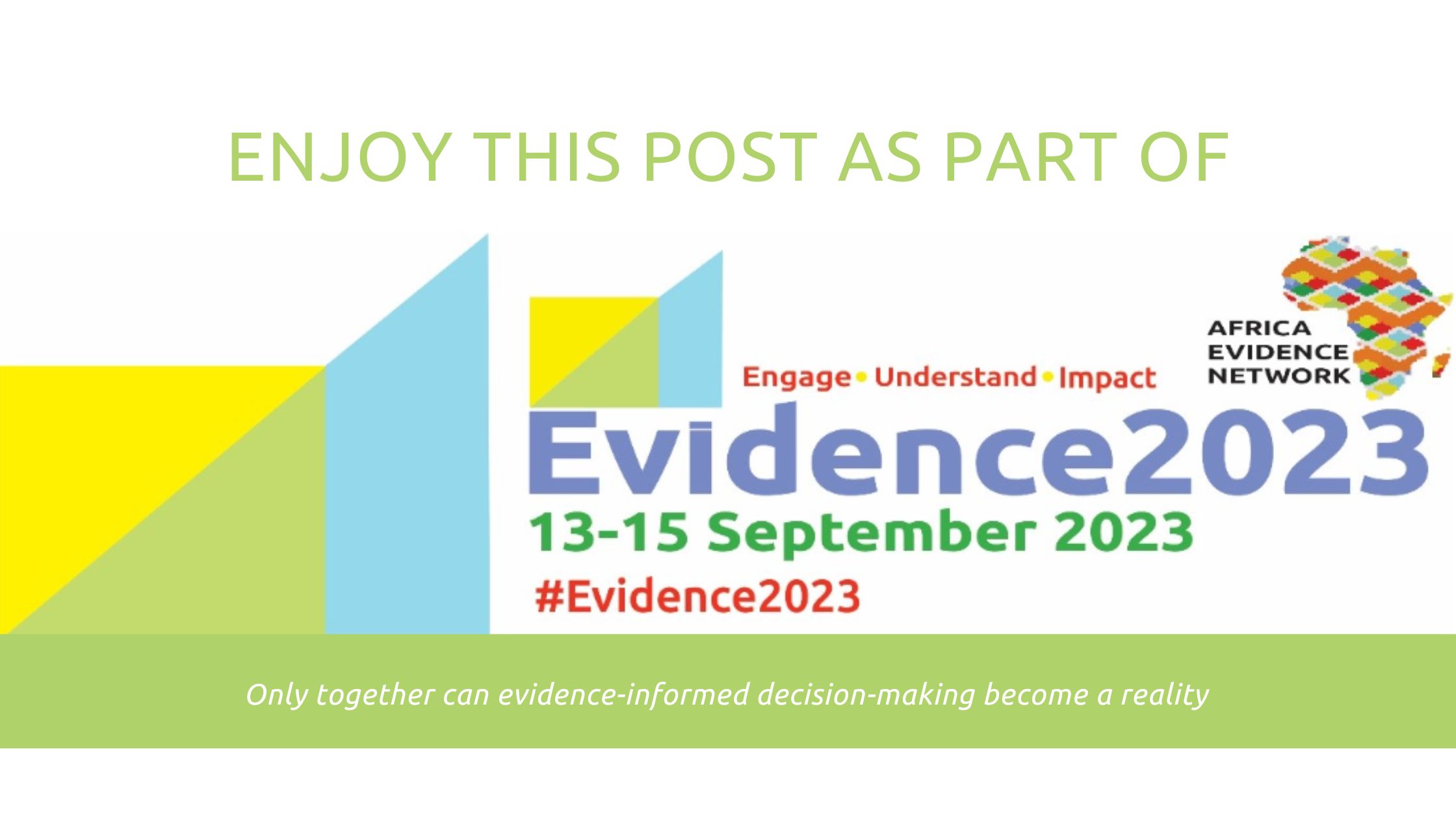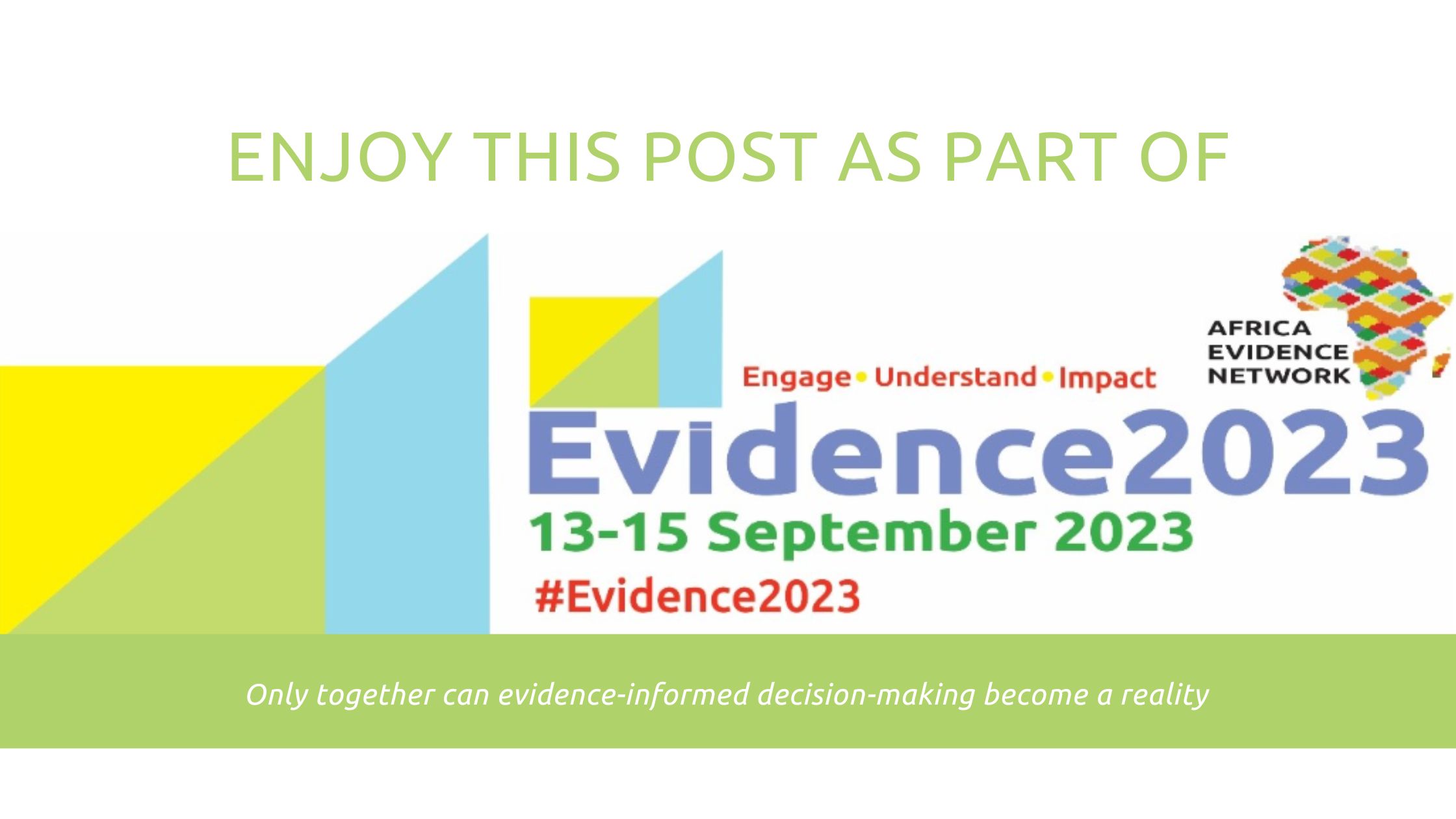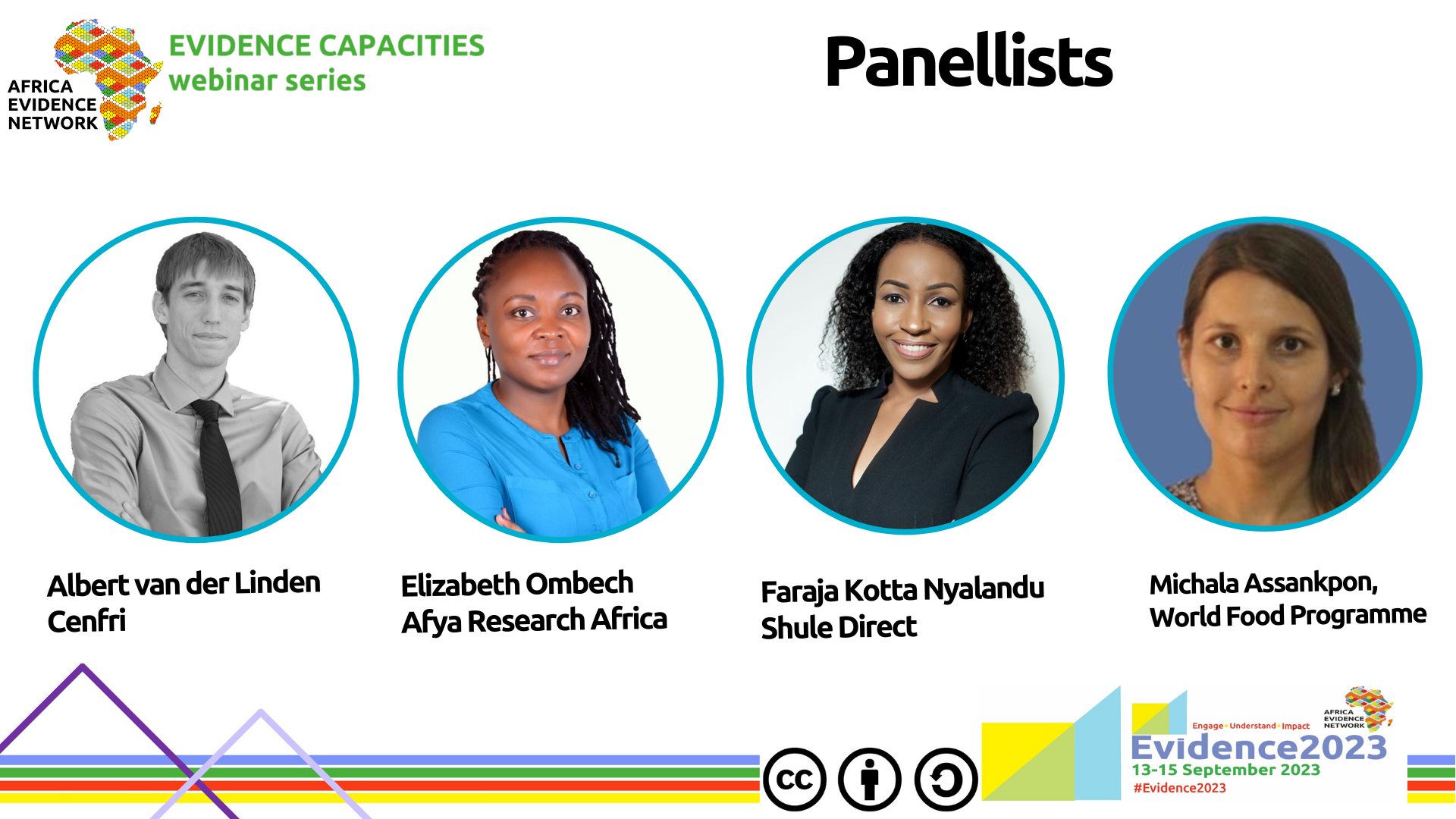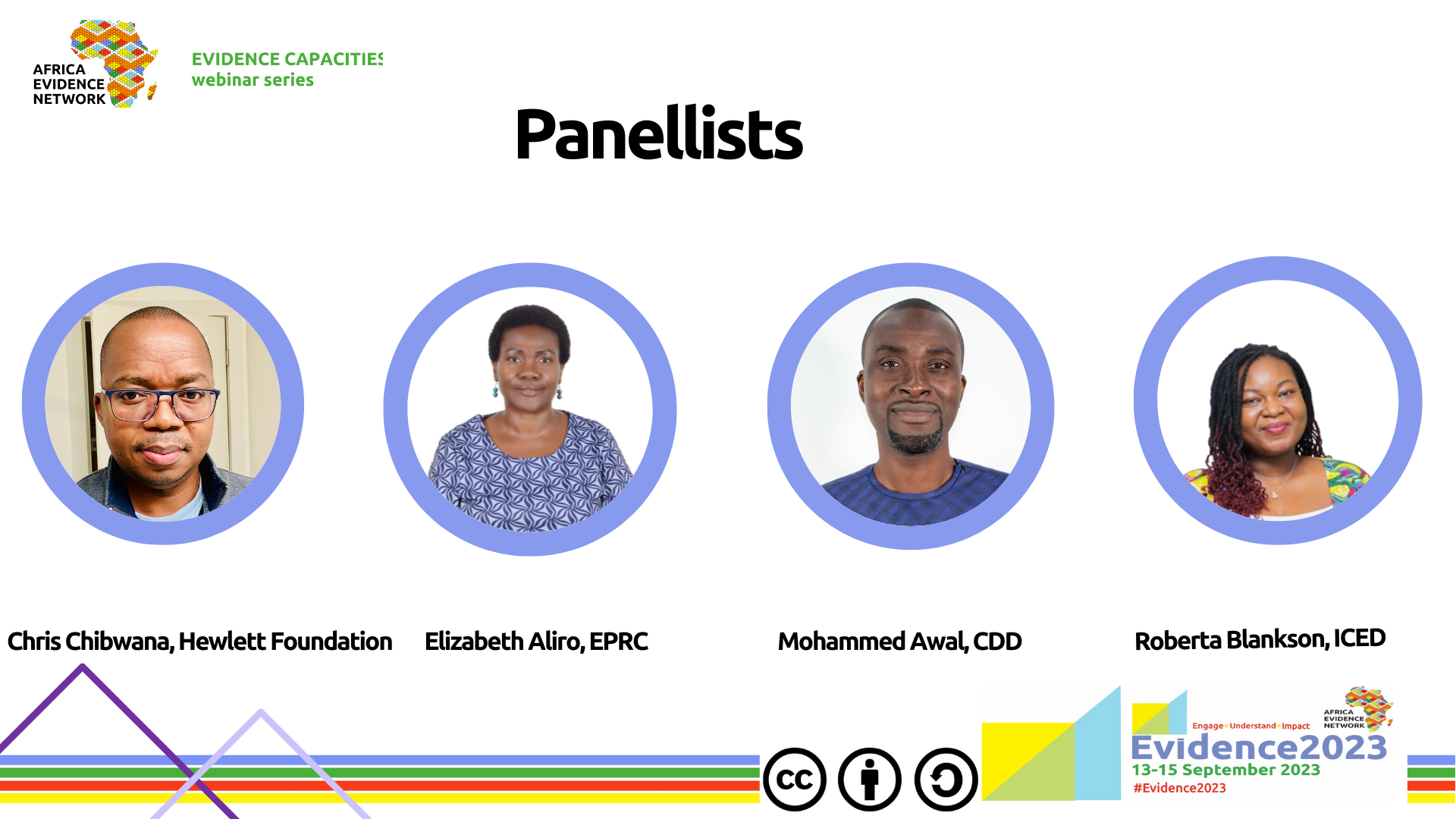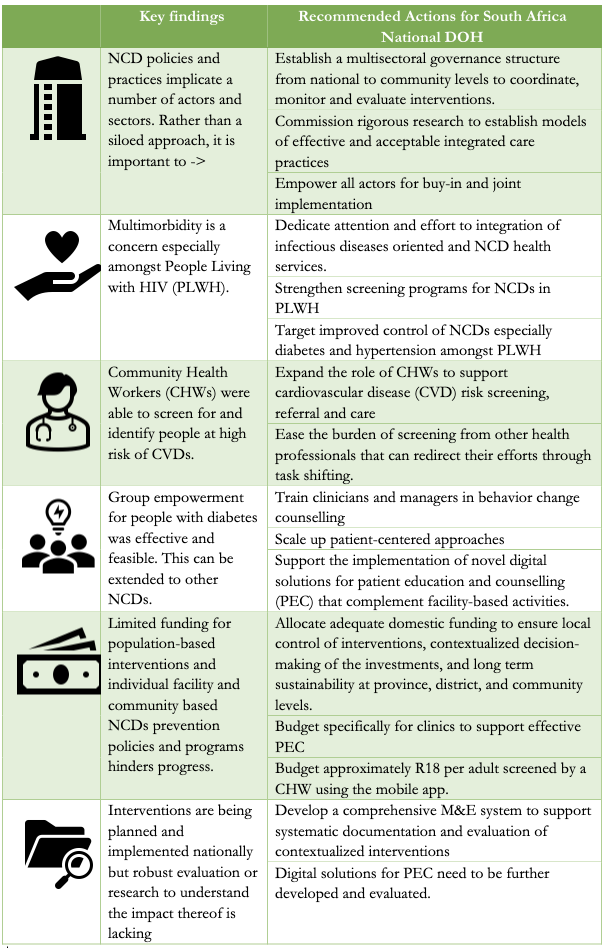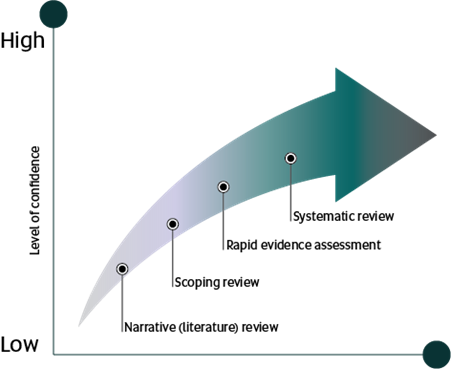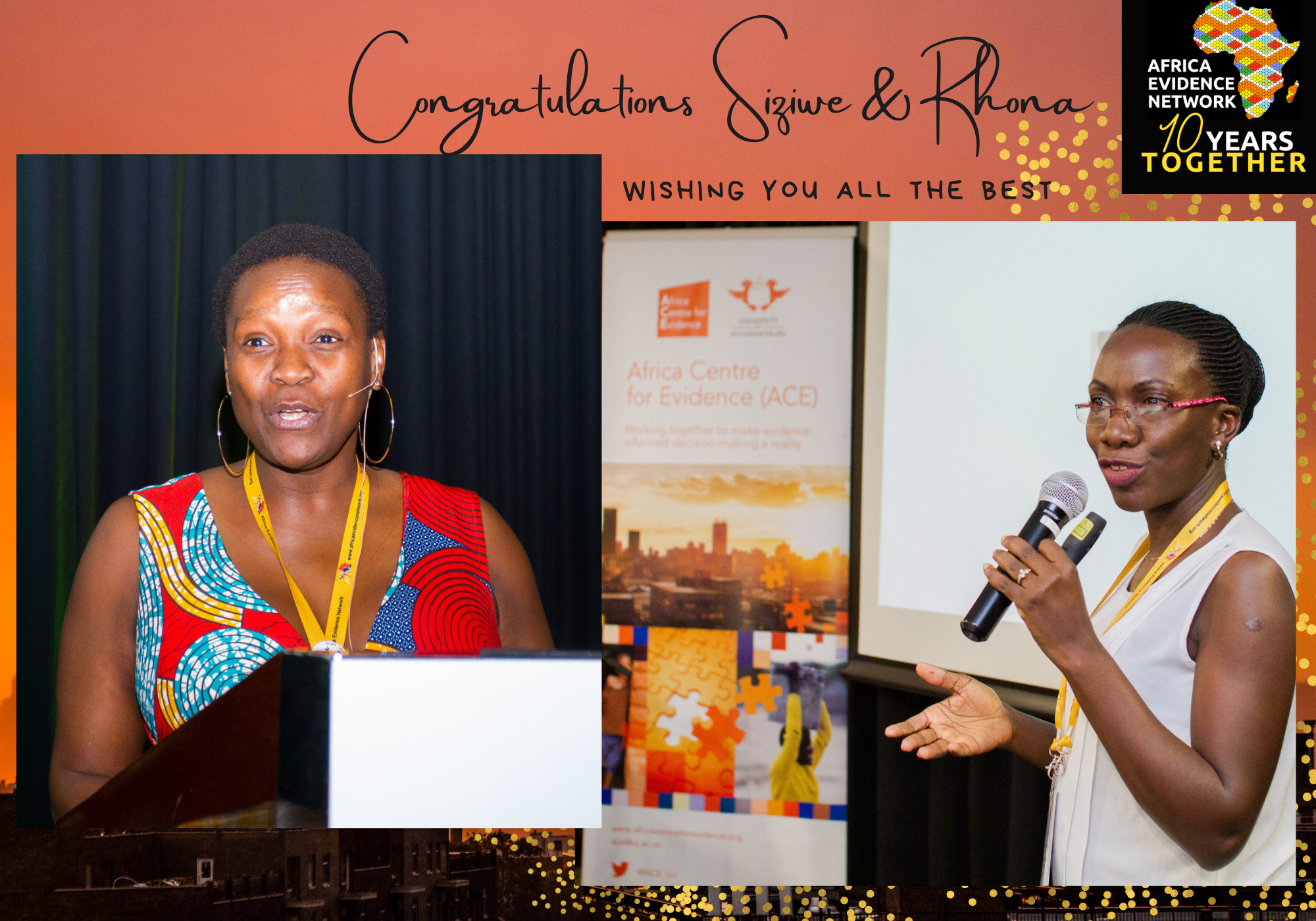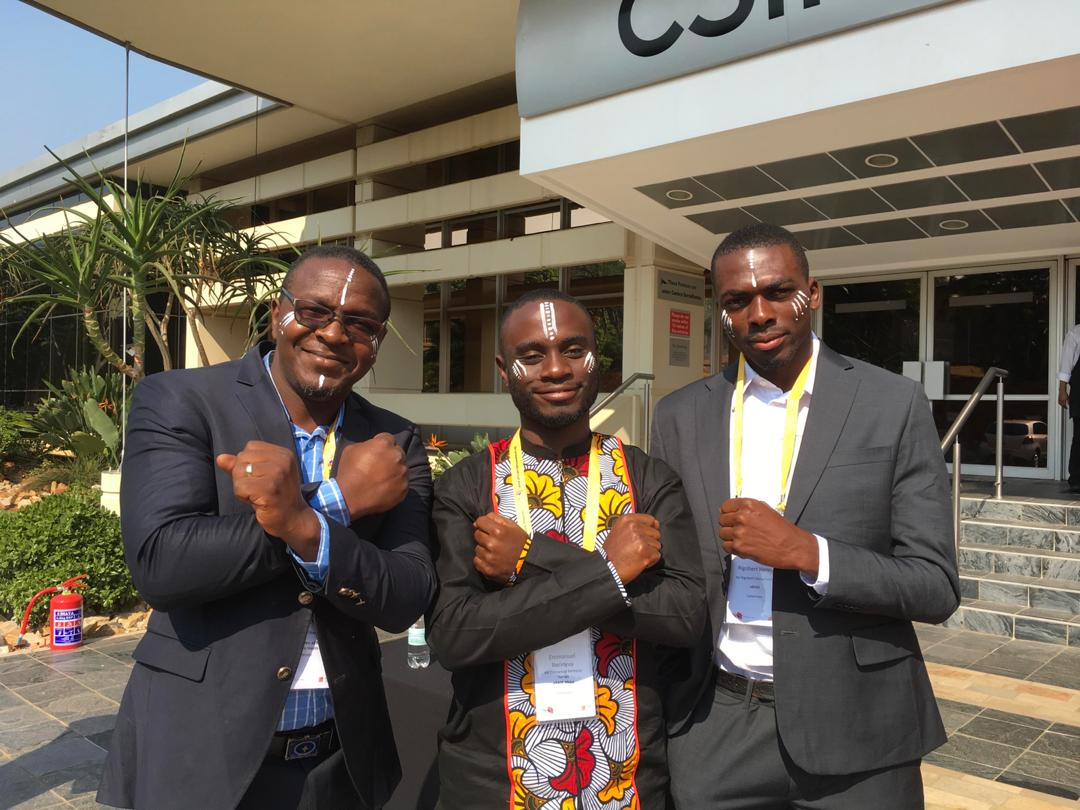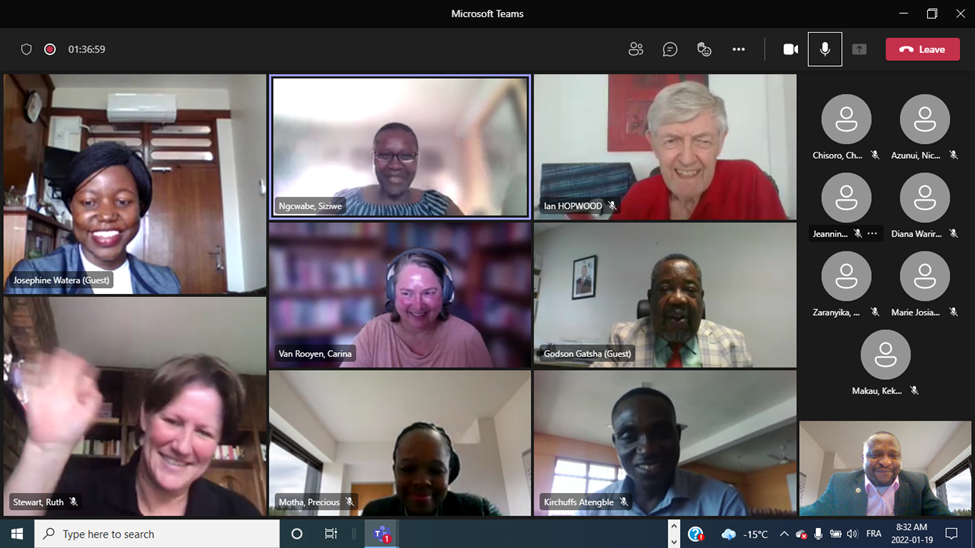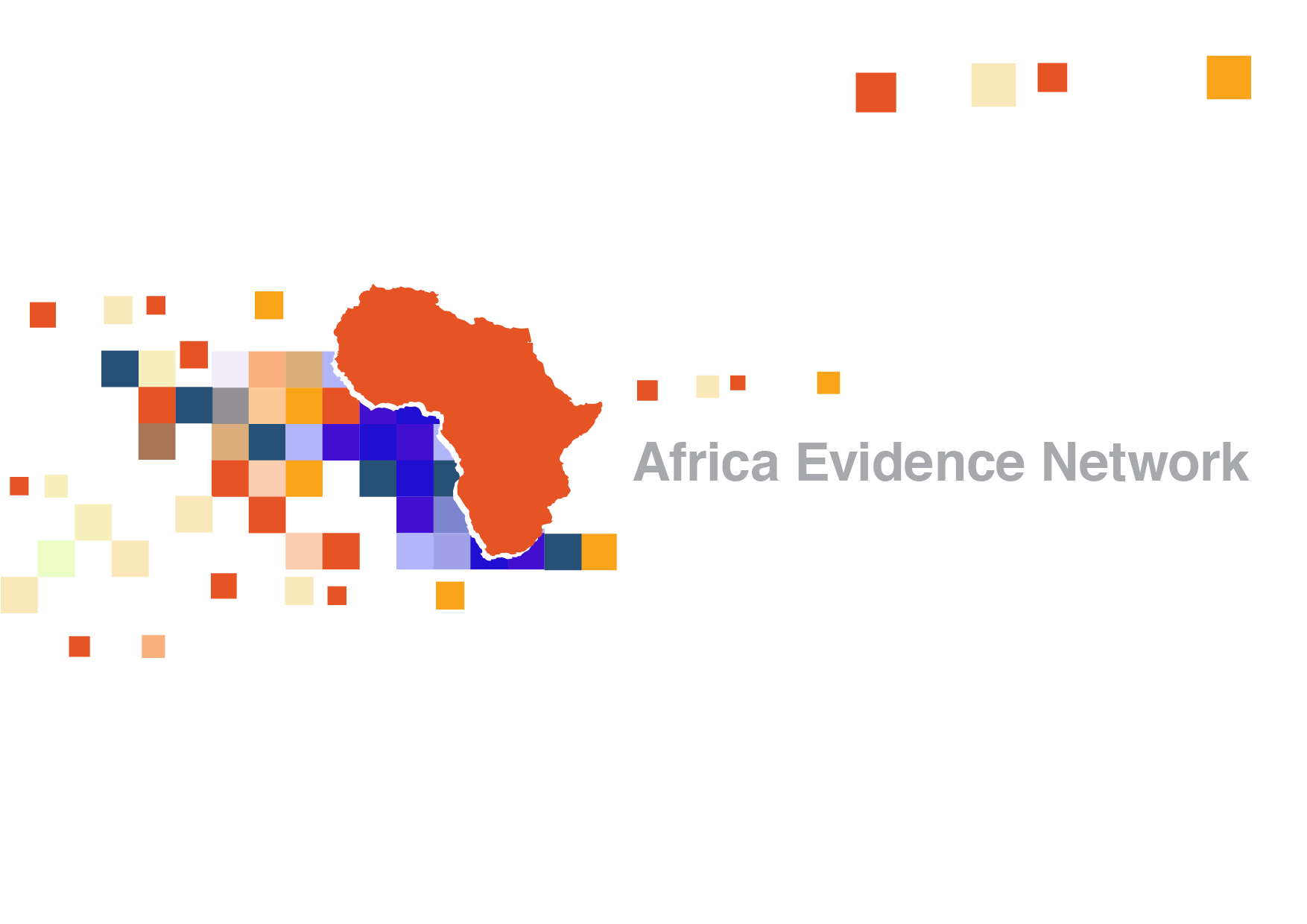This blog is the first of a three-part series to celebrate the first anniversary of the Evidence-Based Practice (EBP) Research group of the Ghana Physiotherapy Association (GPA). The core mandate of the Group is to promote the EBP culture amongst Ghanaian physiotherapists and other rehabilitation professionals through research, training and advocacy to advance quality patient centred care. The Group was birthed on 13th March 2022 following the creation and first publication of two EBP initiatives; GPA Evidence Updates and the GPA Evidence Database on 13th February 2022. Over the past year, the Group has churned out a number of outputs towards achieving this mandate. Examples are the monthly publication of the GPA Evidence Updates, the monthly update of the GPA Evidence database, and the running of educative workshops and webinars.
Within this blog post, the team behind the EBP Research group is introduced to the physiotherapy community and wider network of EBP stakeholders globally. First, each team member narrates their experiences on “becoming evidence-based practitioners” and their work within the Group. More particularly, their drive, motivation and passion to achieve their life goals as either evidence-based researchers, clinicians or academics. Secondly, members also share challenges they encountered in pursuing their set goals and how they overcame them. Lastly, the team shares some tips and recommendations on ways to advance as evidence-based practitioners and how the next generation of professionals can “become” too!
Meet the Team
Beatrice Sankah (PhD)
(EBP Research Group lead)
Beatrice is a musculoskeletal physiotherapist. She holds a PhD from University of Southampton, UK; an MSc (Physiotherapy) from Glasgow Caledonian University, UK and a BSc (Physiotherapy) from University of Ghana. She is currently a visiting researcher at the University of Southampton, UK.
Driven by the passion to impact the next generation of rehabilitation professionals, I am keen on advancing quality physiotherapy practice and education in Ghana and beyond. EBP is one of my research interests and I like to consider myself as an emerging EBP expert with the passion to promote this globally. Having worked clinically in Ghana for some years and with the exposure of learning through postgraduate studies, I observed some gaps in the use of quality evidence-informed physiotherapy practice in Ghana, which needed addressing. This led to my creation of the EBP Research group and its preceding EBP initiatives in partnership with GPA to support the promotion of EBP culture amongst Ghanaian physiotherapists. Working to achieve these goals has not come without challenges; mostly limitations that come with effecting changes which are not always wholly welcomed by all. That said, the support of trusted colleagues, friends and mentors has and will continue to drive this passion.
My advice to the next generation of physiotherapists is to: “Dare to dream! And take bold steps to achieve your goals. Connect with like minds and exchange thought-provoking ideas to positively impact your career. Above all, look for mentors to guide you through your journey”.
“Your positive drive”, “My sincere passion” and “Our collective effort” will help change the narrative of Ghanaian Physiotherapy practice through EBP.
Mary Wetani Agoriwo
(Research Lead, Parkinson’s disease)
Mary is a neuro-physiotherapist with over a decade experience in clinical practice at the 37 Military and Korle Bu Teaching hospitals. She hold a BSc. in Physiotherapy from the University of Ghana and an MSc. in Neurorehabilitation from Brunel University London, United Kingdom (UK). She is an assistant lecturer at the University of Health and Allied Sciences, Ho, Ghana and currently pursuing a PhD in Physiotherapy at the Stellenbosch University, South Africa. She is also a member of the GPA EBP Research Group, in-charge of Parkinson’s disease (PD) research output.
My passion for quality physiotherapy practice and research motivated the desire for further studies and involvement in my first collaborative research on using MyotonPRO device to objectively measure muscle tone in PD. As a member of the EBP Research Group, I see this as an opportunity to live my dream and desire for ensuring good clinical practice and research in Ghana. I have the opportunity to update myself monthly on key research findings in PD, which is my research area of interest, and contributes significantly to my academic work. This journey has not been without challenges of some discouraging comments and experiences. However, these negative comments are rather received as the fuel for an inner drive for excellence in research and practice.
Good clinical practice based on sound evidence leads to effective and timely outcomes/recoveries. I encourage all Physiotherapists to aim at becoming Evidence-Based Practitioners for better Physiotherapy practice in Ghana.
Martin Ackah
(Research Lead, Cerebral Palsy)
Martin is a physiotherapist and holds a master’s degree in public health specializing in epidemiology, biostatistics, and disease control from the University of Ghana. Additionally, Martin holds a certificate in systematic review and meta-analysis from the University of Ghana Centre for Evidence Synthesis and Policy (UGCESP) and Africa Communities of Evidence synthesis and Translation (ACEST). He is a PhD student at Northumbria University, UK.
EBP has developed into a crucial tenet of healthcare over the last few decades. Yet, there are several obstacles to its implementation, particularly in lower- and middle-income countries. As a young and early-career researcher, I am passionate about the promotion of evidence implementation in rehabilitation. From this perspective, I seized the opportunity to join the EBP research group when it presented itself to serve as a means of expressing my passion and motivation to bring evidence to the doorsteps of clinicians. As a team member, I had the opportunity to advance my organizational and transferable skills. Additionally, I have developed a strong interest in learning about the regional and global trends in the management of physiotherapy cases.
My advice to the next generation is to work hard to overcome fear and seize limitless opportunities while remaining steadfast and passionate about what they do.
Hosea Boakye
(Research lead, Low Back Pain)
Hosea is a physiotherapist with 10 years of clinical experience. He holds a Bachelor of science in Physiotherapy and Masters in Public health from the University of Ghana.
When I had the opportunity to become a member of the EBP Research Group of the GPA, I wholeheartedly accepted the offer because as a clinical researcher, I presumed this would be a platform for me to expand my knowledge in research. Little did I know that my expectations and understanding about being a member of the group was just a minute fraction of the scope of the group's operation. Primarily, the group seeks to bring evidence to the doorsteps of physiotherapists and to train them on how to use the evidence in their practice. As the lead in musculoskeletal conditions, I screen the available systematic reviews and guidelines every month on time. Over the past year, working with the group has improved my teamwork skills, meeting deadlines and also being able to peruse literature better than I used to. Personally, as a clinician, my treatment has been based on the tenets of EBP where I use high quality evidence, patients’ preference and my experience in the management of my patients. This has greatly improved my treatment outcomes.
It is my desire that the entire physiotherapy fraternity will embrace EBP in their day-to-day management of patients to achieve a better outcome.
Akua Afriyie Bilson
(Research Lead, Stroke)
Akua completed her undergraduate degree in Physiotherapy at the University of Ghana and went further to get her Master’s degree in Neurorehabilitation from the University of Nottingham, UK. She has worked for over a decade as a physiotherapist and has vast clinical experience in stroke rehabilitation from her practice in various hospitals in Ghana.
I can say my passion for EBP was birthed during my postgraduate studies. I was exposed to applying EBP knowledge to my clinical work. With this experience, I became totally invested into promoting EBP as a clinician. The call to join the novel EBP research group of the GPA was an opportunity to be part of a great vision. I was confident that working with like-minded people would help me advance my skills as an evidence-based practitioner. I can say without a doubt that this has been my experience since we started a year ago. I've had the opportunity as the stroke lead to compile monthly updates for the GPA evidence database. I have also had the honour of serving as a facilitator in the group's first evidence-based workshop held in Accra (12-13th January 2023). The journey has however not been without its own hurdles due to demands from work and other personal activities. Looking back nonetheless, I will say I have not regretted my decision. I'm excited about the future with this group; I hope to establish a strong portfolio as an evidence-based practitioner and to mentor young physiotherapists in Ghana to do the same.
Adjoa Banson
(Quality Assurance Team)
Adjoa's primary profession is physiotherapy; she trained in the University of Ghana and pursued Master of Physiotherapy with endorsement in Orthopaedic Manipulative Therapy at the University of Otago, New Zealand. She has worked as a physiotherapist in the Tamale Teaching Hospital until taking up an Assistant Lecturer position in the Department of Physiotherapy and Rehabilitation Sciences of the University of Health and Allied Sciences, Ghana. She is currently pursuing a Doctor of Philosophy in Physiotherapy at the University of Cape Town, South Africa.
My experience in EBP has spun across my different academic and professional milestones. Namely, from being an undergraduate physiotherapy student when I first heard of the EBP concept but clueless about the ‘how’; to my clinical work as a physiotherapist when I was faced with the reality that I did not know ‘how’, “so best to shelf the idea until a more appropriate time”; to the excitement of the possibilities during my postgraduate studies when I learned more about EBP; to eventually branching into academia, when I have had to work as a teacher and researcher. Each stage has presented different challenges and experiences. For example, I have understood that clinicians do not have the time to follow all new publications and have experienced first-hand that without being taught EBP, one cannot effectively practice or offer the associated benefits to stakeholders and end users of one’s profession and/or service.
Everyone at any stage of their career, in any part of the world, can play a key role in EBP. I believe that an open mind, a determined will and the dedication to put in the work, are helpful to surmount any clinical, academic or research hurdle.
Cosmos Yarfi
(Quality Assurance Team)
Cosmos is a neurological physiotherapist with over fifteen years’ experience in clinical practice at the Komfo Anokye Teaching and Nkawie hospitals, Ghana. He hold a BSc. in Physiotherapy and an MSc. in Disability and Rehabilitation from Ghanaian universities. He is an assistant lecturer at the University of Health and Allied Sciences, Ho, Ghana and currently pursuing a PhD in Physiotherapy at the University of the Western Cape, South Africa. Cosmos is a member of the GPA EBP Research Group, in-charge of quality assurance. He proofreads the final monthly EBP Updates and I’m responsible for circulating it to members/ public.
There are new pieces of evidence being churned out every day, so as an evidence-based researcher and practitioner, I have to always keep abreast with the current evidence in my field of practice (neurology). This involves reading and critically appraising systematic reviews and clinical guidelines in my field of practice. My motivation as an evidence-based practitioner is to contribute to knowledge in stroke rehabilitation in the Ghanaian context by carrying out cutting edge research and forming collaborations to solve global health issues and influence policy in stroke rehabilitation in Ghana. There are quite a number of challenges as an early career researcher: lack of resources/materials, funds and mentors for giving direction and forming collaborations for carrying out cutting edge research. I recommend to all PTs to embrace the new paradigm of healthcare; which is EBP if we want to make clinical and research impact in our various fields of practice and thereby influence development and implementation of policy in our jurisdiction.
Take home Message
Context-appropriate clinical practice that is patient-centred, and is founded on findings from quality scientific research, experiences of the health professionals and values and preferences of patients, is perhaps the only realistic approach to holistic evidence-based rehabilitation. The EBP Research group, GPA recognises the importance of EBP and has taken the step towards contributing to holistic physiotherapy practice in Ghana. It is important to build evidence in our local context as physiotherapists working in Ghana. The EBP Research Group has initiated this drive and it is our expectation that all physiotherapists will help to achieve this feat.
Disclaimer: The views expressed in published blog posts, as well as any errors or omissions, are the sole responsibility of the author/s and do not represent the views of the Africa Evidence Network, its secretariat, advisory or reference groups, or its funders; nor does it imply endorsement by the afore-mentioned parties.
